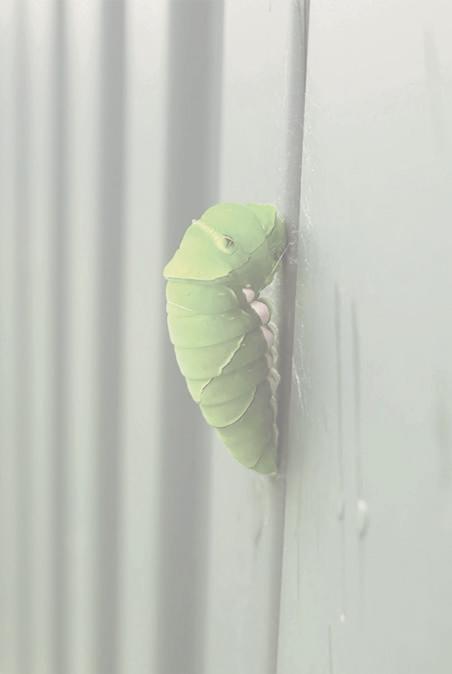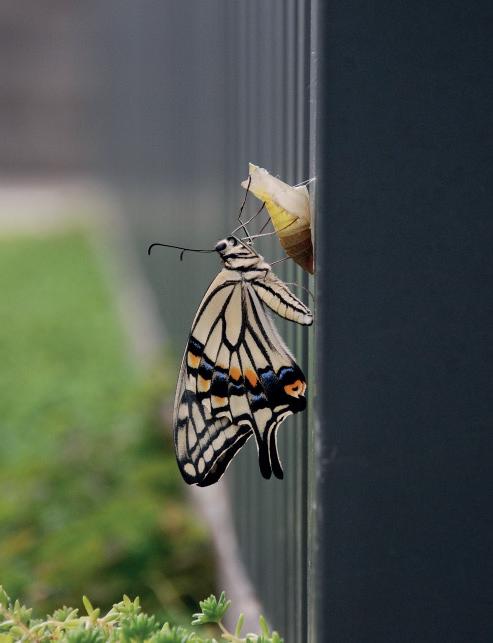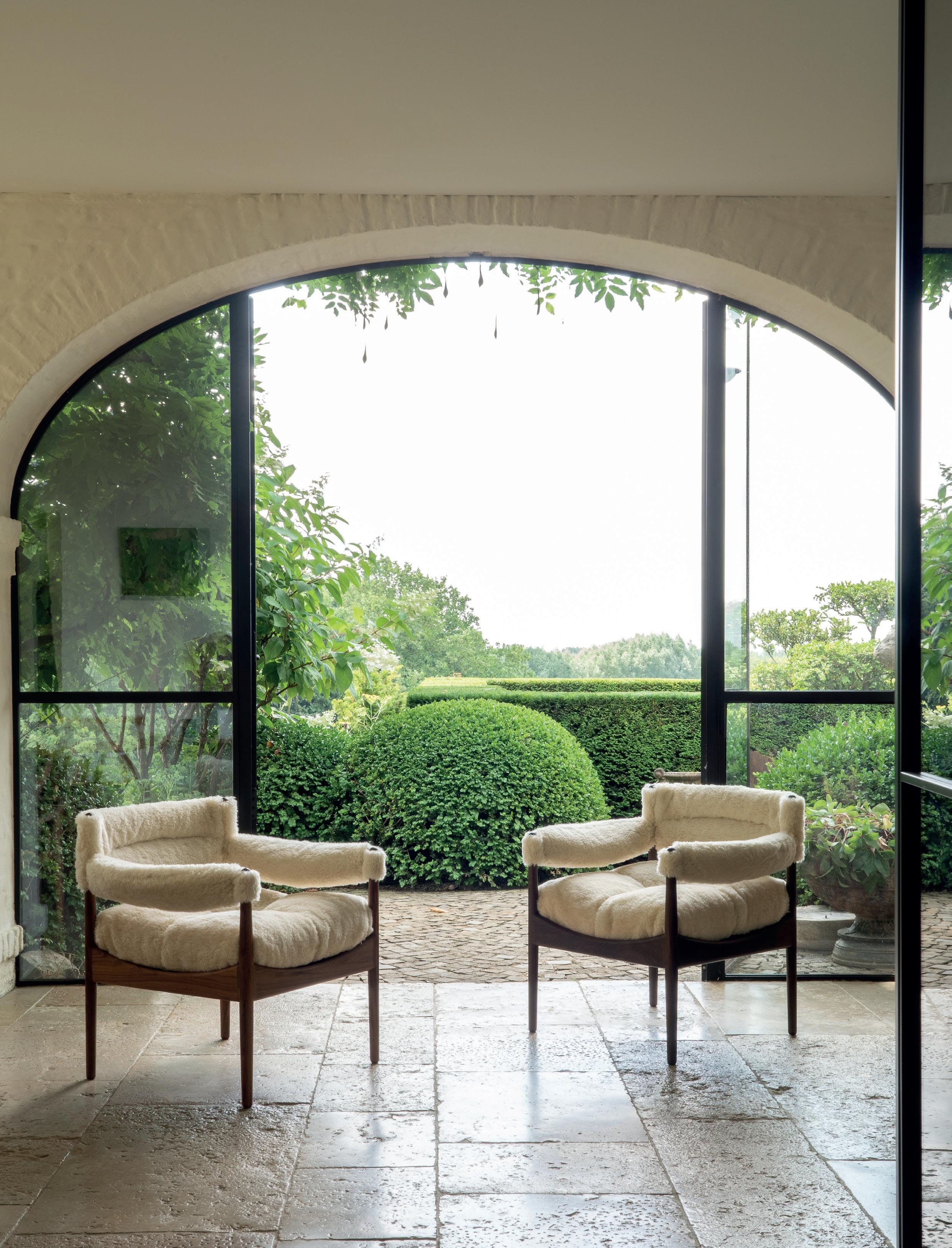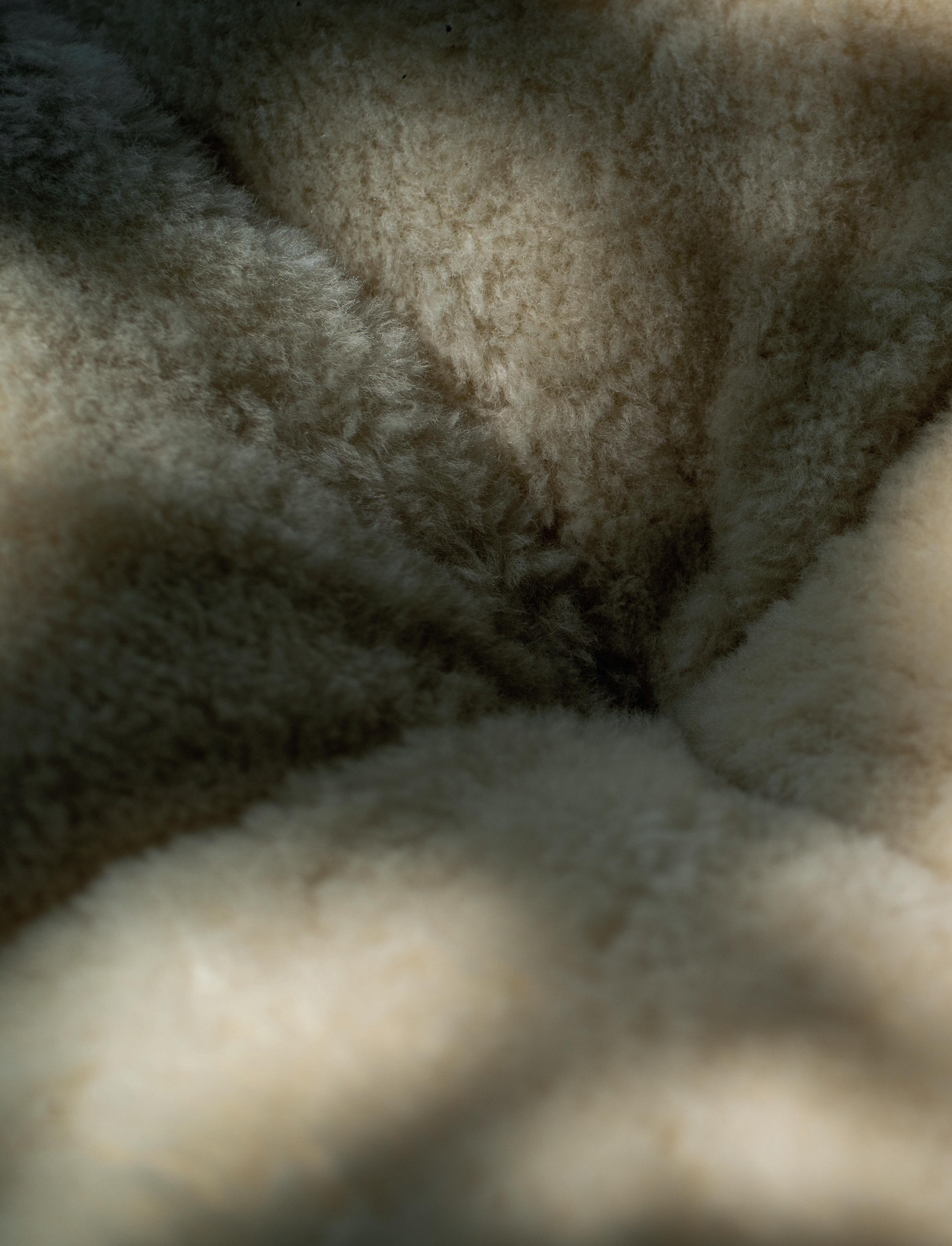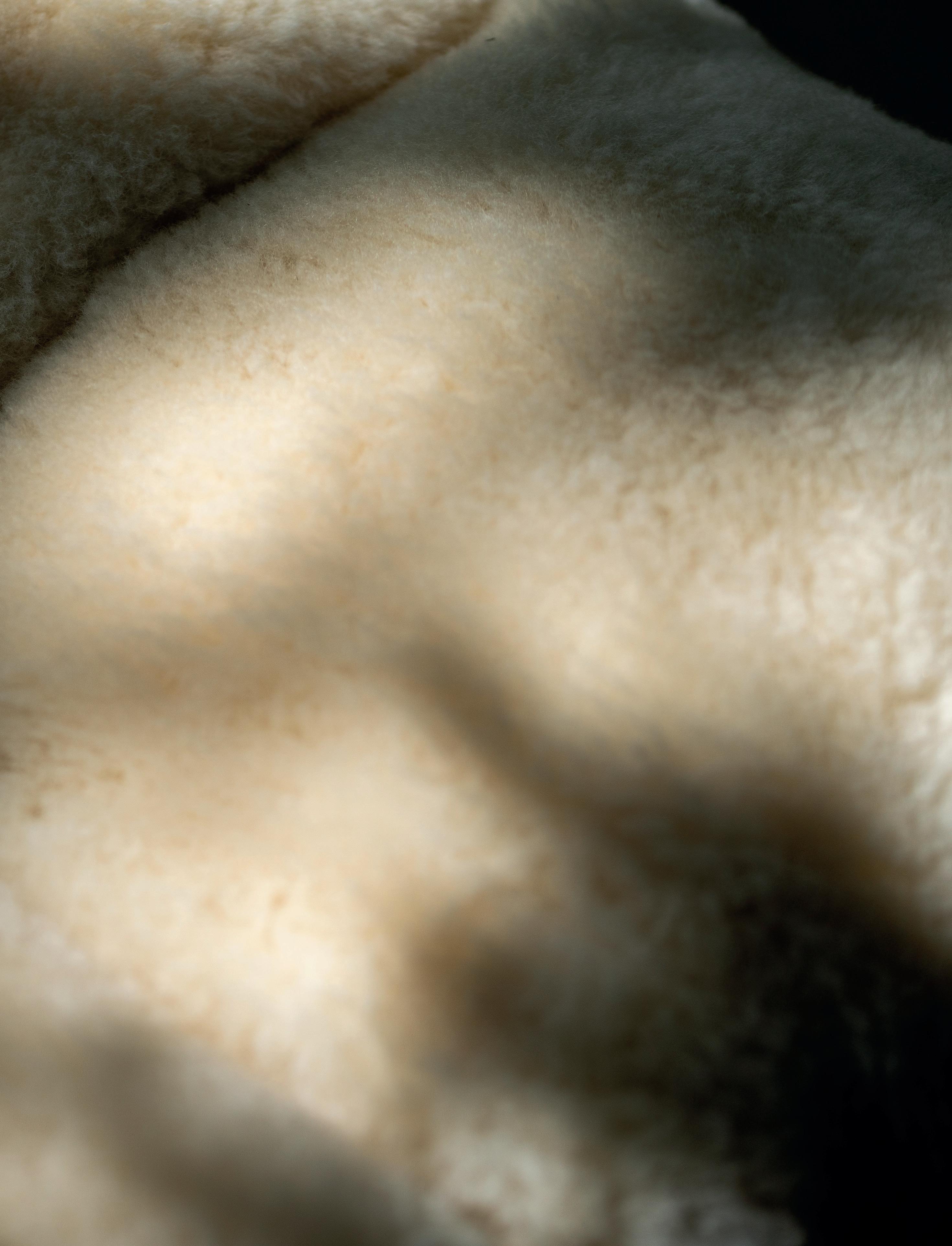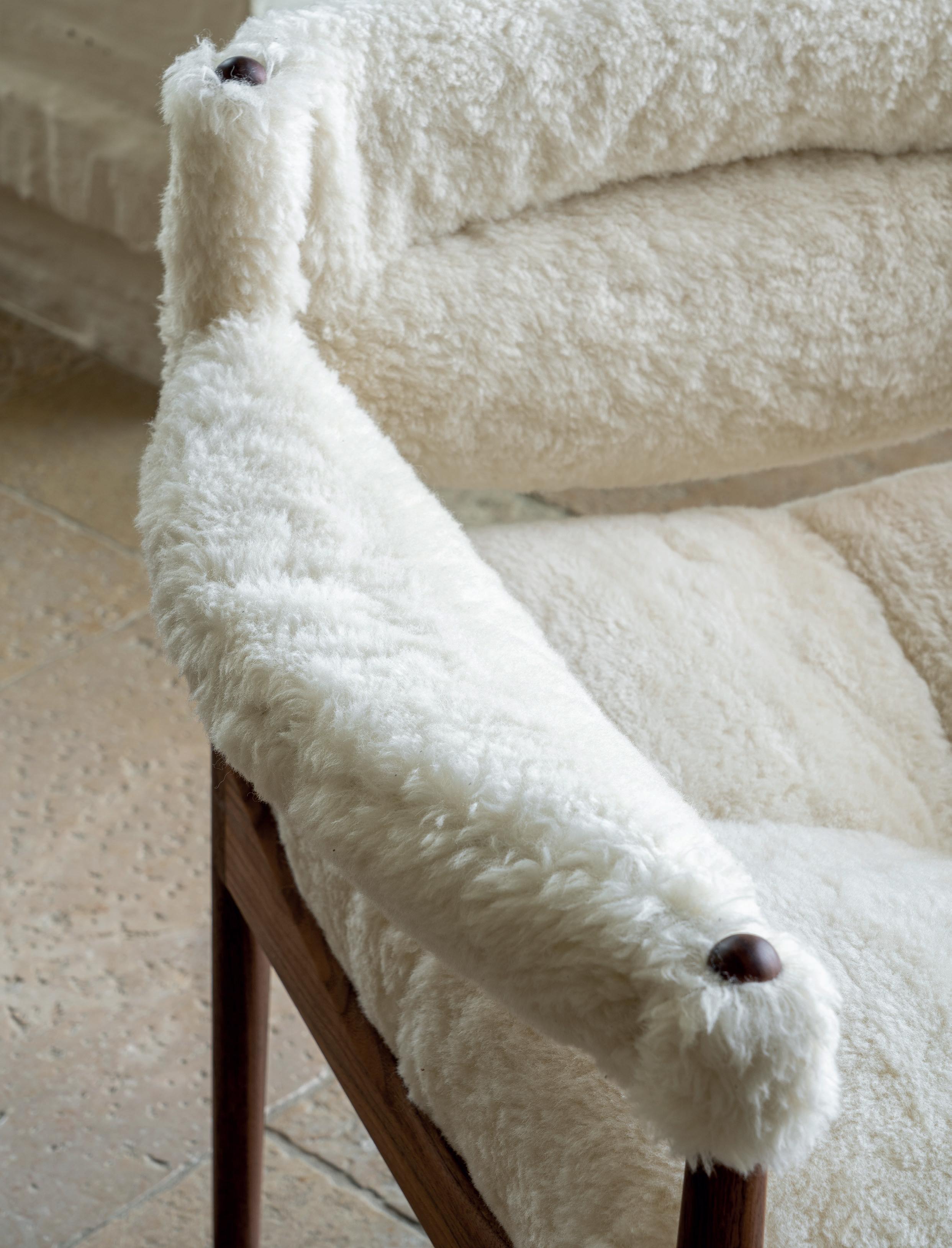Kristian Solmer Vedel (1923-2003)
In this chapter, we delve into the life and creations of the renowned Danish designer, Kristian Vedel, whose legacy is deeply intertwined with the Scandinavian design movement. His innovative spirit and unwavering commitment to functional design have left an indelible mark on the world of design. Although Kristian Vedel is no longer with us, his daughter Karen Vedel graciously offered her insights, allowing us a glimpse into the extraordinary life of her father. Through the words of his family, we explore who he was and what made his designs truly exceptional.
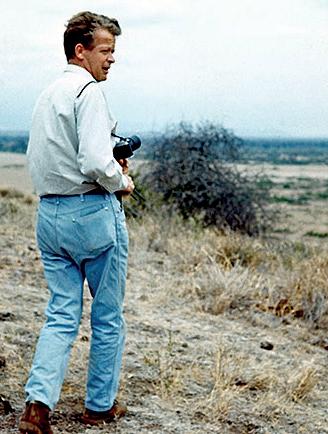
Harmony of vision and method
Kristian Vedel’s systematic brilliance, inventive spirit, and artistic mastery
Kristian Vedel was a true master of systematic design, seamlessly merging his inventive spirit with explicit artistic talents. Vedel’s meticulous approach extended to every detail, from material treatment to the shape of items, resulting in creations that were technically and artistically flawless. His remarkable ingenuity was vividly displayed in his multifunctional kids chair, a marvel of
11
Kristian Vedel A design journey
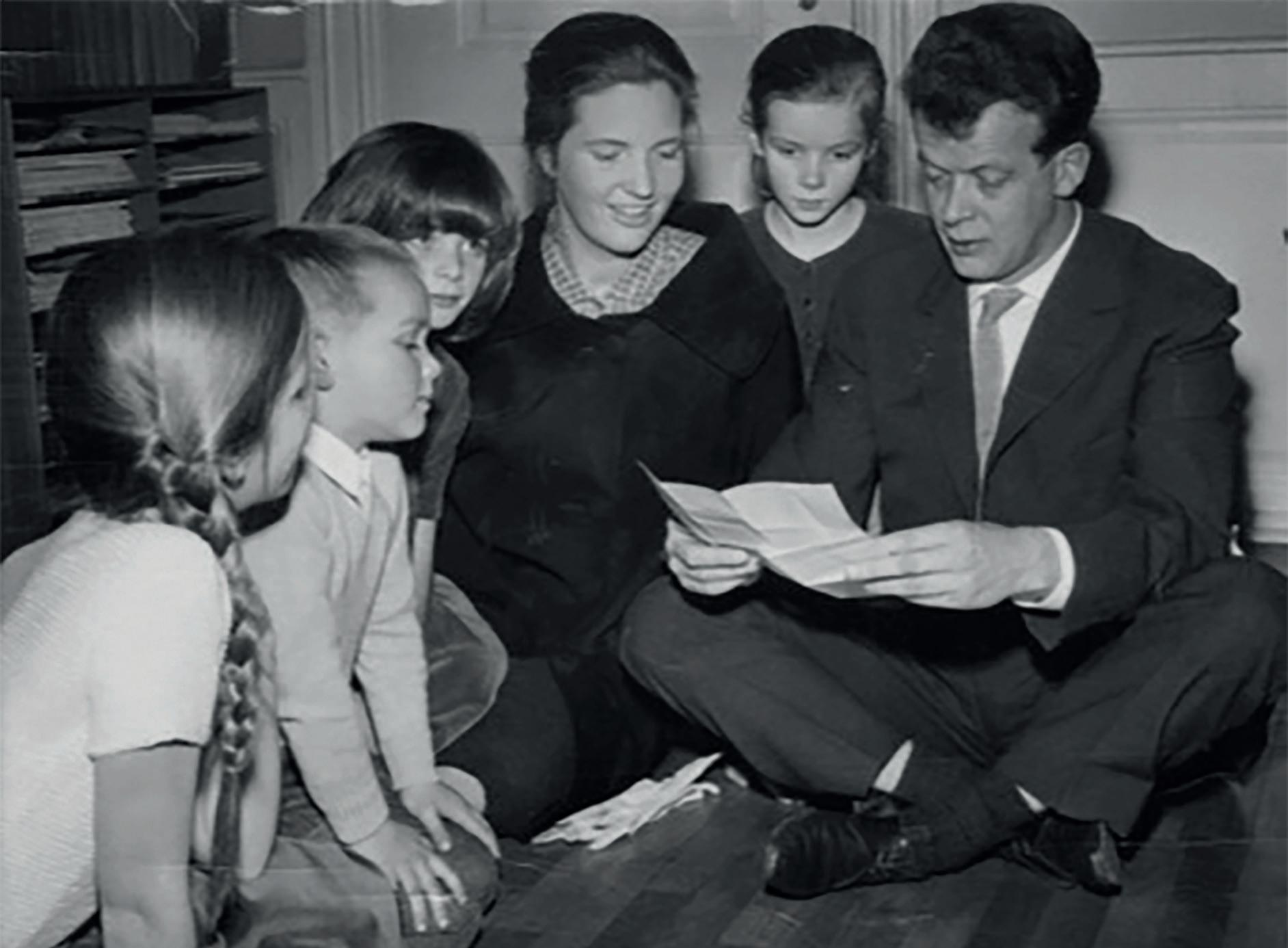
adaptability that evolved alongside a child’s growth. This chair effortlessly transformed into a combined chair and table and could even be flipped over to become a toy, showcasing Vedel’s unparalleled creativity.
Another example of his systematic design approach was the melamine utensils series crafted for Torben Ørskov and Co. Vedel, trained both as a cabinetmaker and furniture architect, stood among the likes of Wegner and Mogensen. Unlike his peers, Vedel was not confined to traditional materials. In an era where plastics were often regarded as inferior, Vedel welcomed the challenge. His groundbreaking melamine series showcased an unprecedented tactility, elevating melamine into an art form. Notably, his melamine series earned him the prestigious Lunning Prize, a Danish design award previously received by renowned designers such as Hans J. Wegner and Poul Kjaerholm, marking a significant milestone in Vedel’s career.
The Lunning Prize organization acknowledged Vedel’s unique contribution, stating that his significance as a designer extended beyond the richness of the melamine series for which he received the award in 1962. According to them, Vedel didn’t just design products; he also thought deeply about the moral and ethical aspects of design. The young designer had the ability to critically examine established norms, regulations, and practices within the design industry. The jury of the Lunning Prize could discern early on that Vedel was more than just the creator of extraordinary designs, even before Vedel himself was fully conscious of it. His design approach possessed a profound depth that set him apart, showcasing a level of creativity and innovation that would leave a lasting mark on the world of design.
His unconventional design products were just the beginning of a more drastic shift in his career. Winning the Lunning Prize, not only acknowledged his exceptional work but also provided him with the means to explore new horizons. With the prize money, Vedel embarked on a transformative trip to South America. His travels in South America opened his eyes to diverse perspectives, propelling him toward a path of environmental consciousness and global design inspiration.
The family at the occasion of the Lunning Prize in 1962 (From left Eline, Anders, Karen, Ane, Inger, and Kristian Vedel)
12
Kristian Vedel A design journey
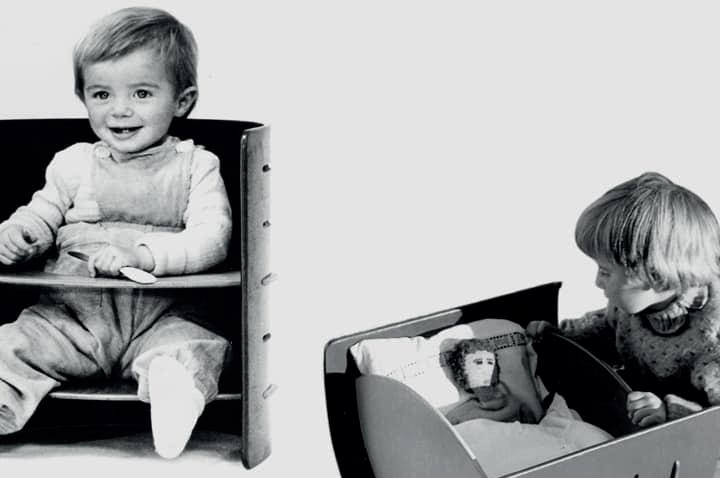
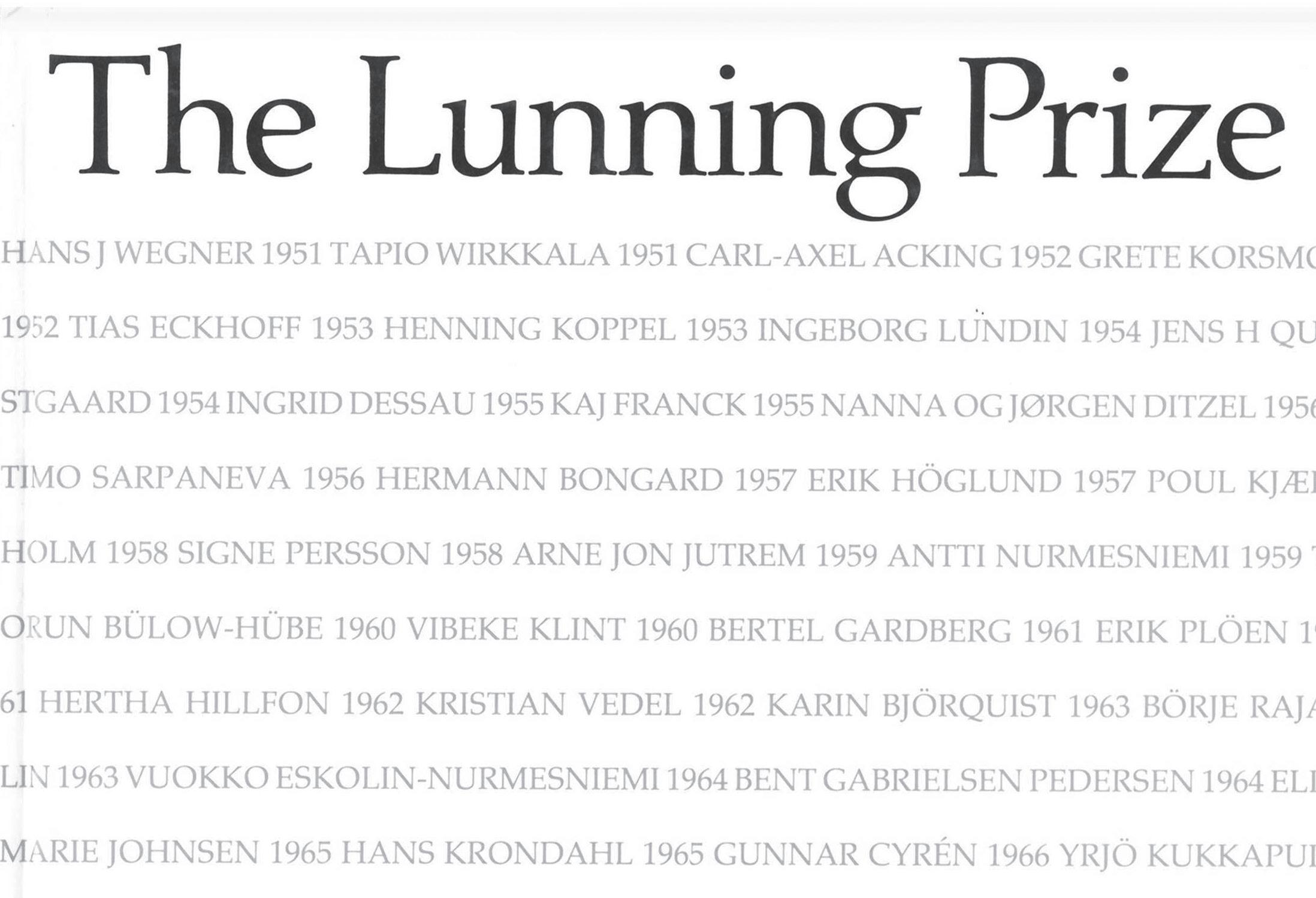 Top: Kids chair by Kristian Vedel. Kristian Vedel received the silver medal at La Triennale di Milano for children’s furniture (1957).
Bottom: Kristian Vedel (center), on the cover of the Lunning Prize book.
Kristian Vedel
Top: Kids chair by Kristian Vedel. Kristian Vedel received the silver medal at La Triennale di Milano for children’s furniture (1957).
Bottom: Kristian Vedel (center), on the cover of the Lunning Prize book.
Kristian Vedel
13
A design journey
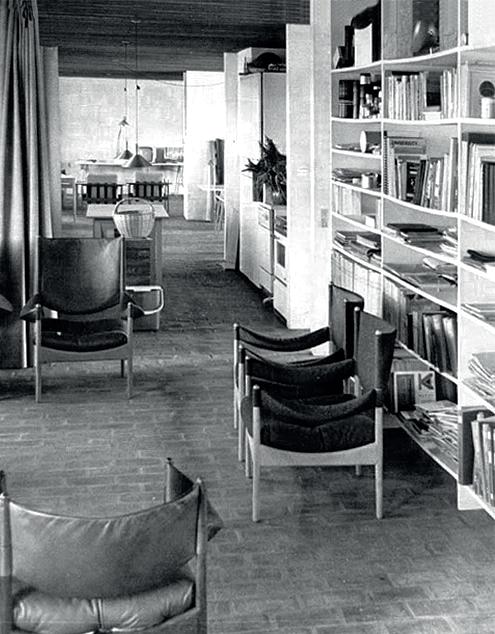 Kristian Vedel
Kristian Vedel
14
A design journey
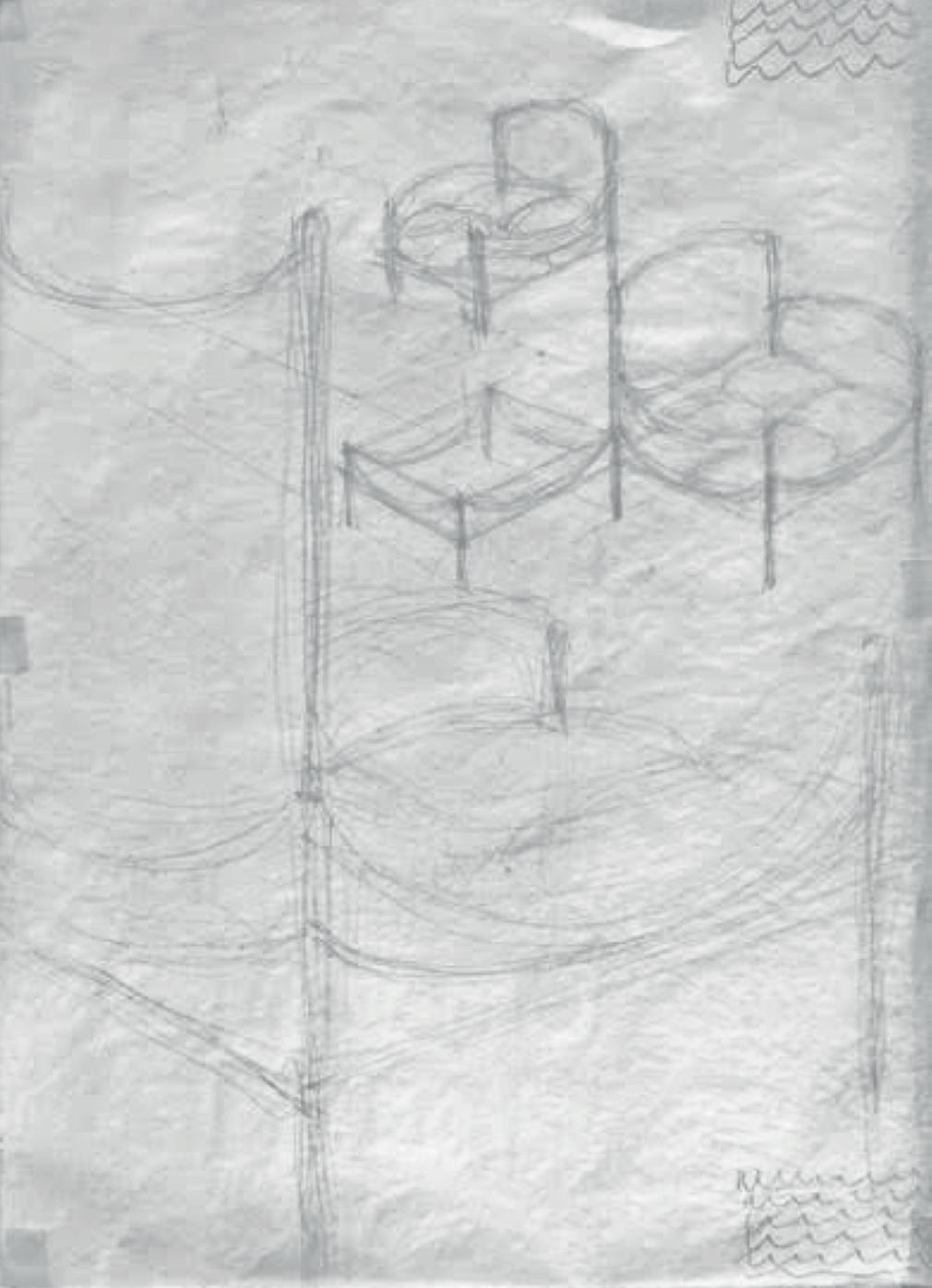
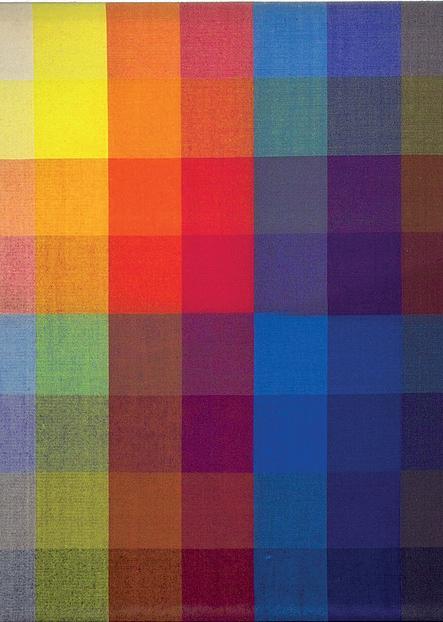
Cultural inspiration as a fuel for design MODUS: When furniture transcends mere functionality
Kristian Vedel’s adventure across South America sparked his creativity, consolidated his approach to design, and led to the birth of his iconic Modus furniture series. The Modus series manifested his thinking about practical design. It wasn’t just furniture; it was a fusion of different ideas, ergonomic comfort, and a touch of versatility that redefined how furniture could adapt to various spaces and needs. The
their identical square base, appear simple at first, but the details are extremely complex. Each
was carefully manufactured, reflecting Vedel’s commitment to precision and attention to detail. The frames, assembled in the factory, ensured strength and accuracy, eliminating the risk of incorrect assembly often associated with consumer-assembled furniture.
The Modus was an exemplar among his designs that were more than mere utility objects. Designs with significance will always withstand the test of time. He was a systematic designer; even in presenting fabric samples and colors, we see he is always working according to a pattern. Not coincidentally, it is also made up of squares, just like the series itself. He left nothing to chance. Everything was wellthought-out so that the entire story aligned. Vedel inherited this precise and holistic approach from Kaare Klint, his mentor during his studies. Pure and meticulously crafted designs were his signature.
Left: original first sketches from Vedel’s archive depicting the Modus series. A composition of lines and arcs.
Right: colour swatches of wool textile for Modus.
series, with
element
Kristian Vedel
15
A design journey
Left page: The Modus series gracing Kristian Vedel’s home in Thyholm. His personal space was embellished with his own creations.
From foreign shores to home soil
How Kristian Vedel’s travels shaped his life’s Odyssey
His journey to Latin America marked a turning point in his career and worldview. During that time, there was a clear shift from local to global influences. With the rise of air travel, overseas cargo, and television, local culture was being replaced by global trends, presenting both opportunities and challenges.
During his visits in South-America Vedel was deeply influenced by local crafts and traditional designs. He observed the tension between preserving traditional craftsmanship and the influence of modern designs. His experiences made him realize the need not only to focus on the social aspect of design but also on the preservation of ecological systems. More than ever before, Vedel was confronted with the profound impact design principles can have on both human and natural environments.
Vedel’s expertise attracted the attention of the Danish government’s development agency, DANIDA. He was assigned a unique task: to analyze and report on the feasibility of establishing a Chair in Space Art at the University of Nairobi, Kenya. His advise was negative. Nevertheless, Vedel made history by establishing the first independent department of Industrial Design in independent Sub-Saharan Africa, located at the University of Nairobi in Kenya. His responsibilities extended beyond teaching. Vedel managed two pivotal departments—an educational unit and a research and development institute dedicated to industrial design.
The years in Kenya left a lasting mark on Kristian. The exposure to African cultures, the tension between tradition and modernity, and the direct connection between design and its social and ecological impact profoundly influenced Vedel’s design philosophy. He emerged from this period with a heightened awareness of the transformative power of design principles on both human societies and the natural environment.
Kristian returned to Denmark with a wealth of experiences and a refined vision. Alongside his wife Ane, he founded a design studio in Thyholm, Northern Jutland. In this idyllic setting, they not only cultivated their creative pursuits but also welcomed and mentored students from various corners of the world. Their interests extended beyond design; they ventured into sheepfarming, delving into research on Shropshire wool applications. Their farm became a hub of creativity and innovation, where the landscape itself became a canvas for their ideas.
Kristian and Ane wanted not only to sustain their own livelihood but also to set an example for others. They used local materials and developed products based on the wool and hides of their sheep. This practice illustrated Vedel’s belief that ecology and economy can go hand in hand. He wanted to show that what was developed in the South could be valuable in the North and vice versa. This holistic approach to life and design reflects Vedel’s multifaceted brilliance, leaving an enduring legacy that continues to inspire and captivate designers and enthusiasts alike.
 Kristian Vedel lecturing at the university of Nairobi.
Kristian Vedel lecturing at the university of Nairobi.
16
Kristian
Vedel A design journey
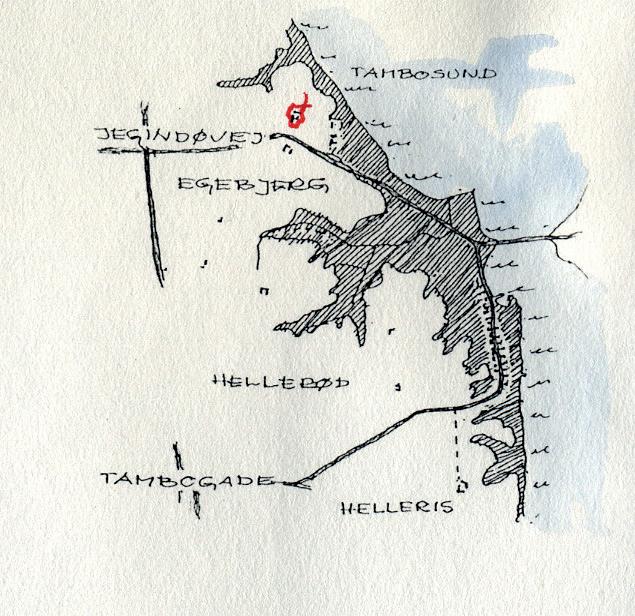
Shaped by his academic background in architecture, Kristian envisioned and designed his residence on the peninsula of Thyholm. The top image features a map of Thyholm, with black outlines delineating its borders. Please note, this map displays only the eastern boundaries of Thyholm; the entire island is not fully depicted.
The shaded part depicts areas of unfarmed nature in the vicinity of the farm. A glimpse of his rural pursuits — his flock of sheep — is captured in the photograph below. The farm of the Vedels, named Meldgaard, is pinpointed in red.
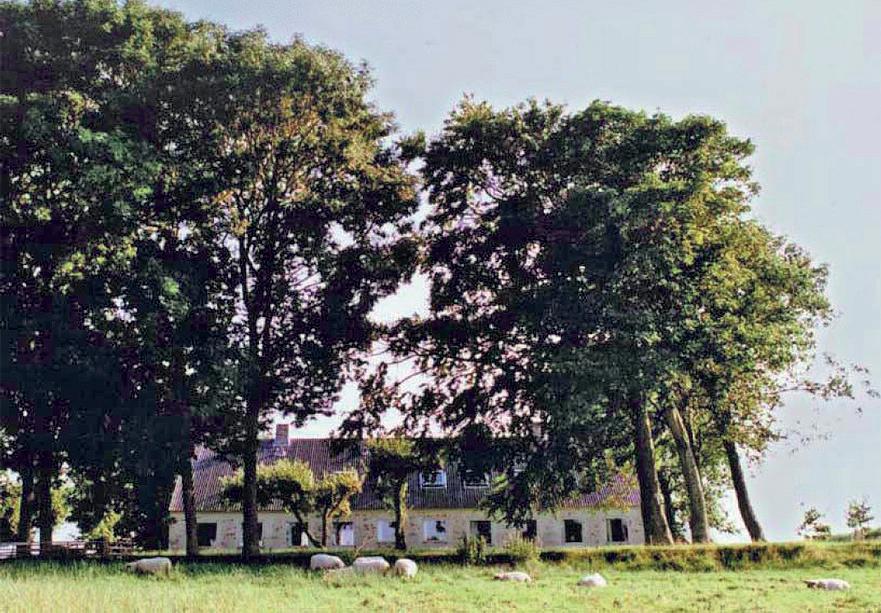
A design journey 17
Kristian Vedel
DATE OF BIRTH
March 2nd 1923
Kristian Vedel was born in Denmark, son of Anders Aabye Vedel, master of theology, who was director of the folk high school Krabbesholm.
STARTING A FAMILY
1950 - 1961
In 1950, he married Birgit Arnfred and, by 1954, he founded a design studio near Copenhagen. Together, they raised four children but eventually Kristian and Brigit parted ways in 1961.
Subsequently, Vedel entered into his second marriage with interior designer Ane Pedersen in the same year.
MODUS SERIES
1961 - 1980
The Modus Series was designed by Kristian Vedel in the 1960s. The exact production dates may vary depending on the specific pieces within the collection. However, the 1960s is the era when Vedel created this series and it became an iconic representation of mid-century Danish design.
1923 a century of
LUNNING PRIZE A TRIP TO SOUTH AMERICA
1962
Winning the Lunning Prize allowed Ane and Kristian to journey to South America, which profoundly influenced their design philosophy towards ecological considerations.
ROYAL DANISH ACADAMY
1942 - 1946
He successfully finished his cabinetmaker apprenticeship in 1942.
Between 1944 and 1945, he had the opportunity to be a visiting student under the guidance of professor Kaare Klint at the Department of Furniture, Royal Academy of Fine Arts in Copenhagen.
In 1946, he earned his graduation from the Furniture Design Department at the School of Arts, Crafts, and Design in Copenhagen.
UNIVERSITY OF NAIROBI KENYA
1968 - 1971
From 1968 to 1971, Kristian Vedel assumed the role of organizer and leader of the Department of Industrial Design at the University of Nairobi in Kenya.
These 3 years in Nairobi will leave a lasting impression on his coming work in witch he values both people and the environment, ensuring that improving human lives doesn’t harm nature.
18
Kristian Vedel A design journey
Kristian Vedel
A design journey
FOUNDATION OF THE SHROPSHIRE SHEEP FARM
1973
In 1973, Kristian and Ane Vedel acquired some of Vilhelm Christiansen’s, a renowned sheep breeder, finest sheep as he sold his flock to pursue work as a sheep expert in Malta.
This event marked the beginning of a dedicated, enduring breeding initiative, reflecting the unwavering commitment and seriousness that defined every endeavor undertaken by the Vedels.
DIFFERENT DESIGN DISCIPLINES
1970 - 2003
Kristian Vedel was a multi-talented artist, whose skills extended beyond the design of furniture and other household items. He was also recognized for his abilities as a graphic designer and in his later years he enjoyed making small vignettes in tusche ink.
While Kristian Vedel is perhaps best known for his iconic furniture designs, his illustrations add another dimension to his creative legacy, showcasing his artistic versatility and ability to communicate through visual storytelling.
Kristian Vedel
BACK TO DENMARK
1972
Back in Denmark in 1972, Kristian and Ane Vedel settled in Thyholm near Limfjorden, where they started a design practice and an extensive project with Shropshire Sheep Breeding.
THE PASSING OF KRISTIAN VEDEL
March 5th 2003
Kristian passed away on the 5th of March 2003 and is buried in Humlebæk Cemetery in Humlebæk, a small town in the north of Copenhagen.
His last years were not easy in terms of health, but he remained at home until the end, cared for by his dear wife Ane.
LAUNCH VEDEL 100 EDITION 2023
On the 2nd of March 2023, Danish Designer Kristian Vedel (1923 - 2003) would have turned 100 years old. To celebrate this special occasion, the Miyazaki Chair Factory launched a special edition, called ‘Vedel 100’.
2023
MIYAZAKI CHAIR FACTORY 2018
The Modus Series were first produced and represented by the Miyazaki Chair Factory at the Salone Del Mobile Milano 2018.
Miyazaki first reintroduced the modus easy and modus ottoman to the market. Following that, the modus side table was introduced and other variations with different armrest configurations.
Furthermore, enthusiasts can anticipate the release of additional models in this series.
19
CHAPTER II
Miyazaki Chair Factory the craftmanship behind the collection
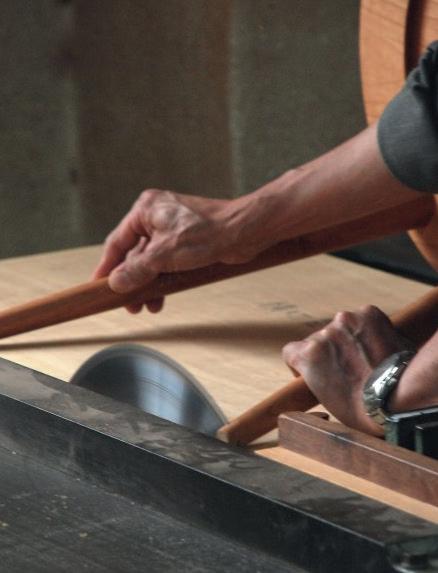 Miyazaki Chair Factory
The craftmanship behind the collection
Miyazaki Chair Factory
The craftmanship behind the collection

Miyazaki Chair Factory
Creating meaningful design for half a century
Miyazaki Chair Factory
The craftmanship behind the collection
In the heartland of Japan, where tradition meets innovation, the Miyazaki Chair Factory has stood as a testament to the enduring pursuit of meaningful design for over five decades. Their legacy, much like Kristian Vedel’s, transcends the realm of furniture, embodying a profound commitment to imbuing their creations with a deeper sense of purpose and significance.
The artisans at the Miyazaki Chair Factory, led by Masahiro Miyazaki, have dedicated their craft to the art of woodworking. Their chairs are not mere pieces of furniture but intricately designed expressions of thoughtful craftsmanship. Each curve, each joint, and every meticulously chosen material is a testament to their unwavering dedication to creating objects that resonate with profound meaning.
As we delve into this chapter, we’ll explore the intriguing parallels between Miyazaki and Vedel, shedding light on the shared values and inspirations that lead to their unique designs.
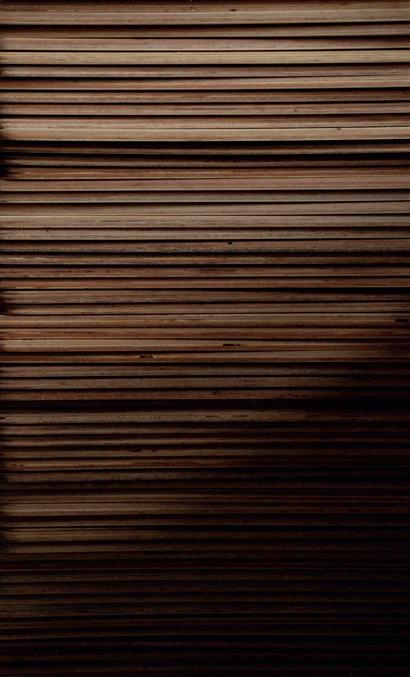
23
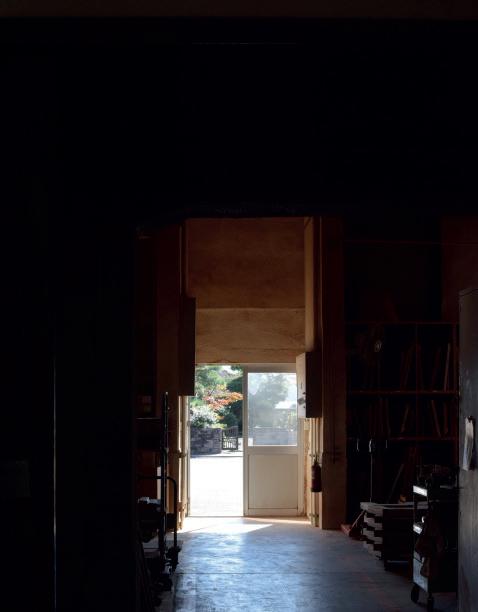
24
Miyazaki Chair Factory
The craftmanship behind the collection
Miyazaki Chair Factory
The craftmanship behind the collection
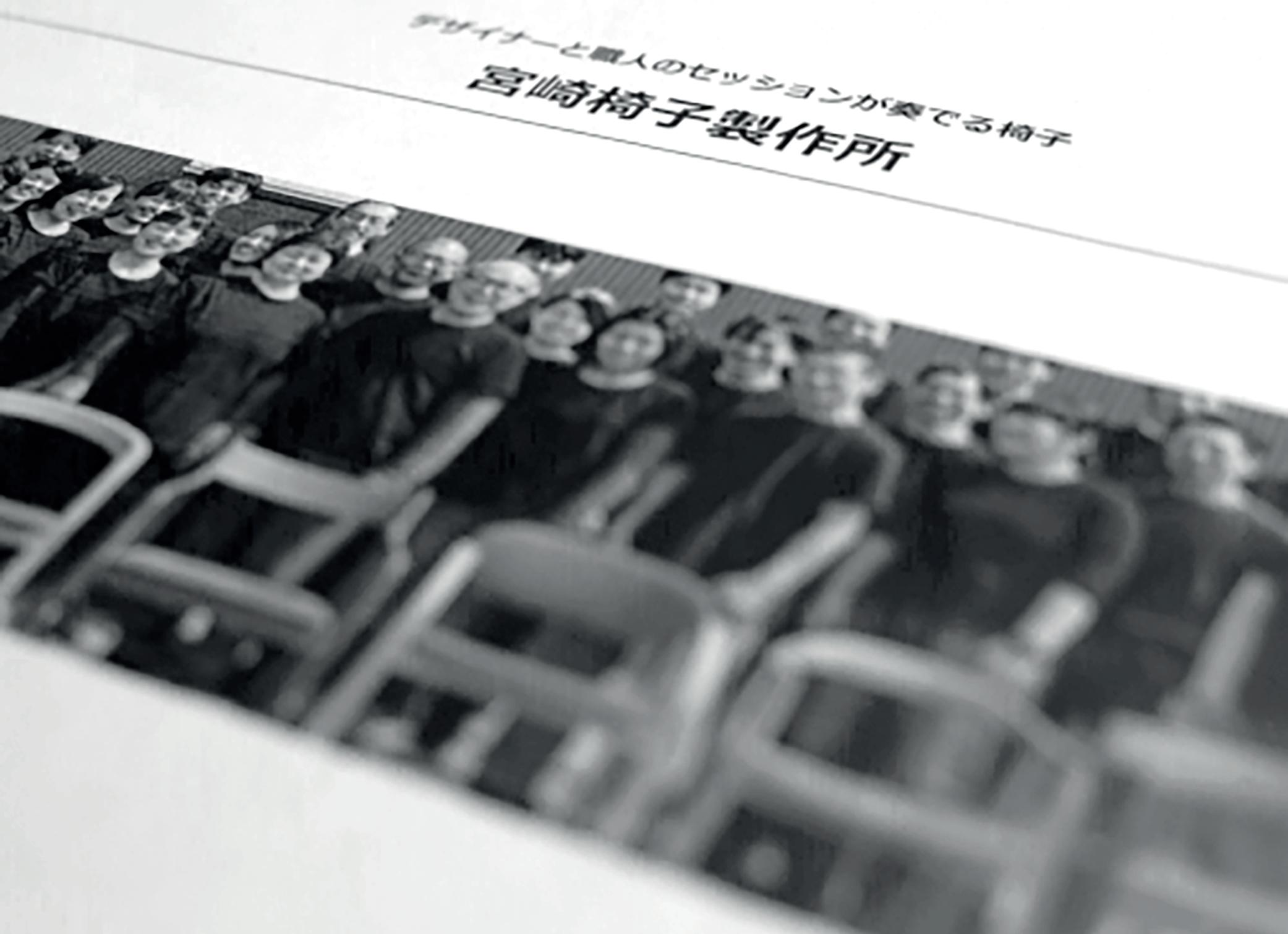
Chairs that make you happy Furniture with a story
Miyazaki transcends being merely a chair manufacturer; they embark on a quest for designs that carry significance. This ethos aligns with the beliefs of Kristian Vedel, who also valued the pursuit of meaningful designs. Miyazaki constantly seeks refined designs where every detail matters, reflecting the deep-rooted Japanese philosophy of finding beauty in simplicity and meaning in every detail. Each design represents a journey, whether it involves exploring never-before-produced concepts, tackling intricate design details, introducing new features, or revitalizing and enhancing old designs.
For instance, Miyazaki has a longstanding collaboration with Kai Kristiansen (born in 1929 and still active as a designer), reviving his old drawings through workshops and prototypes that employ new techniques previously unavailable. Ane Vedel, the wife of the late Kristian Vedel, collaborated with Miyazaki to breathe new life into the Modus series, a design from the 1960s, making improvements in various aspects. Miyazaki prioritizes ensuring that
reproductions of old designs possess the same qualities as new Miyazaki designs. Pieces are reinforced, materials are optimized, and excess material is removed wherever possible. Connections are reevaluated, and the Miyazaki magic occurs as old designs are rejuvenated. Designs will continue to be refined and stripped of unnecessary elements, embodying the ethos of ‘less is more.’ The minimalist yet elegant designs serve as a canvas for individuals to imprint their experiences and emotions, fostering a profound connection between the user and the object.
These items, due to their details, distinguish themselves as everyday objects that provide daily pleasure and comfort through ease of use and a pleasant tactile feel. Miyazaki avoids adding details merely to follow trends, ensuring that consumers can use the pieces for generations without them going out of style. Miyazaki sets high standards for each design, resulting in a seemingly simple and refined end product.
Left: encircled by lush greenery, the Miyazaki’s workspace becomes an extension of the outdoors, with vast windows framing the changing seasons, inviting nature’s essence to infuse every creation.
Right: A magazine beautifully captured the Miyazaki team, placing their director, Masahiro Miyazaki, at the heart of the image.
25
Miyazaki Chair Factory
The craftmanship behind the collection
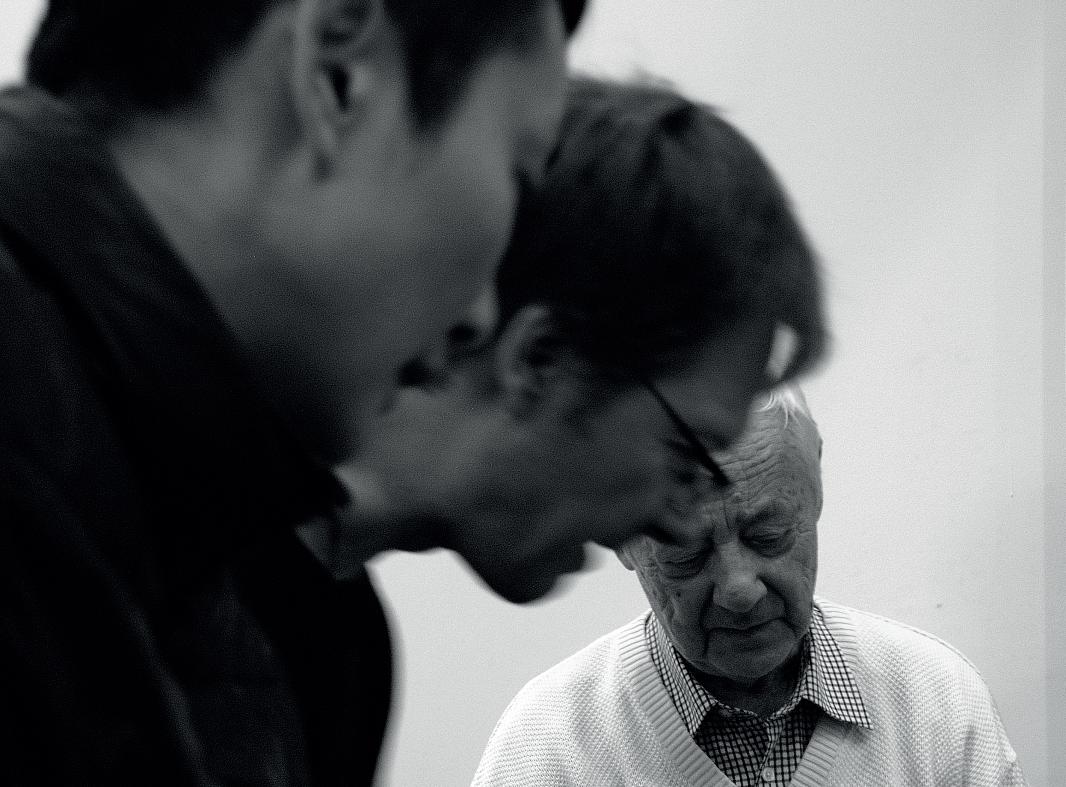
Users first fall in love with the aesthetics but eventually come to appreciate the pieces’ intrinsic value over time, discovering the qualities of the design through usage. Miyazaki’s strength lies in designing for people, prioritizing users over trends or sales. Designs are created and produced with a specific purpose, and they must add value. This principle aligns with Vedel’s approach, where products are tailored to people’s needs after thorough research on the target audience.
Such a design process is time-consuming, but the outcome is often more valuable. For example, it took three years to redevelop the Vedel Modus, reintroduced in 2019 after extensive prototyping and workshops. The Miyazaki Chair Factory and Ane Vedel collaborated on this journey, ensuring that the quality standards of the Miyazaki Chair Factory align with the designer’s goals. This ensures that all Miyazaki designs meet the same quality standards, with no hierarchy of better designs; they all belong to the Miyazaki family. Each piece serves a different purpose but adheres to the same quality standards.
Some designs may focus on a technically challenging detail as the foundation of the design, like the DAEN chair by Japanese designer Makoto Koizumi,
where the elliptical cut and connection are pivotal. Others, like the Tonton chair, incorporate a rocking function. The Modus series aimed to perfect an older design. Yet, using these diverse pieces, one can sense a consistent theme—quality, durability, and a narrative.
Inoda, from the design duo INODA + SVEJE, describes it as ‘the Miyazaki magic.’ Designers conceive an idea, and Miyazaki brings it to life, elevating the initial concept in the designer’s mind to a higher level. This is the essence of the ‘Miyazaki magic’, where the pursuit of meaningful design transcends the functional, creating chairs that not only serve a purpose but also have the power to make you happy.
26
Top: both young and seasoned designers collaborate with Miyazaki. Pictured here are Kai Kristiansen and INODA + SVEJE.
Right: Life at the Miyazaki Chair Factory.
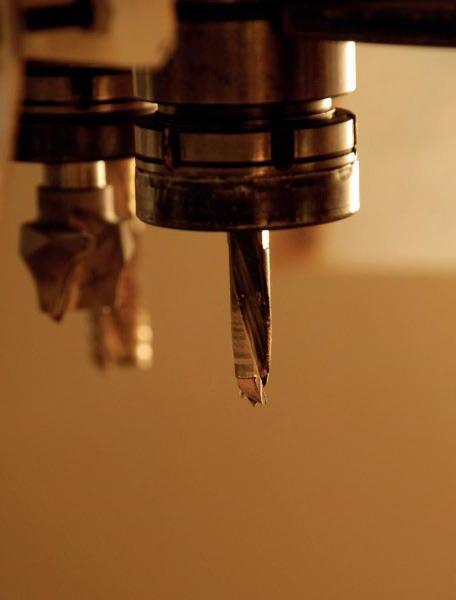
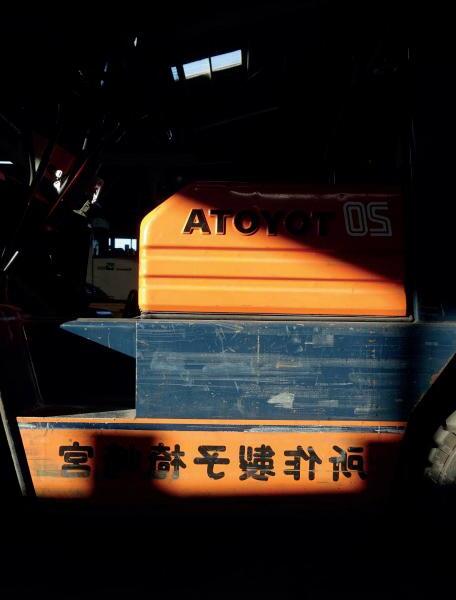
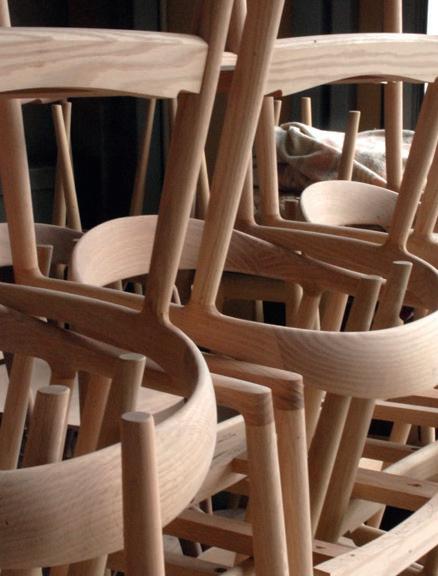
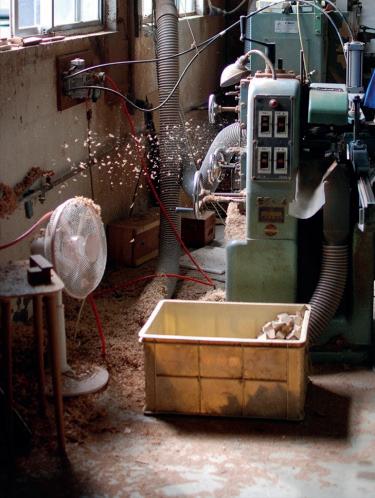
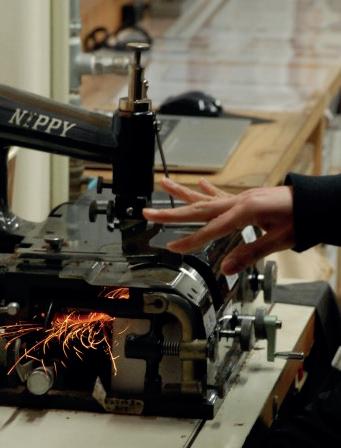
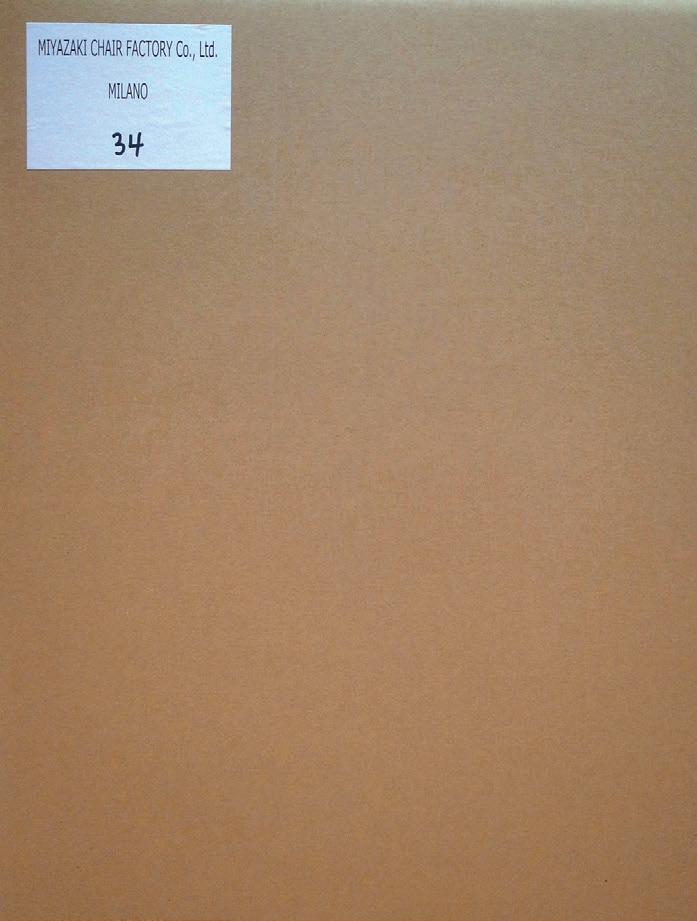
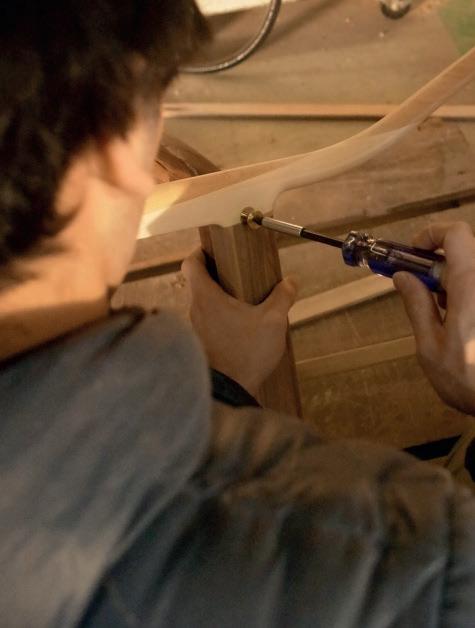
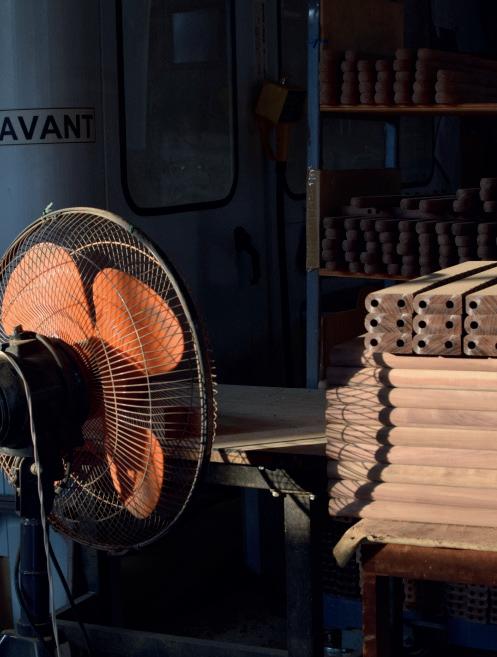
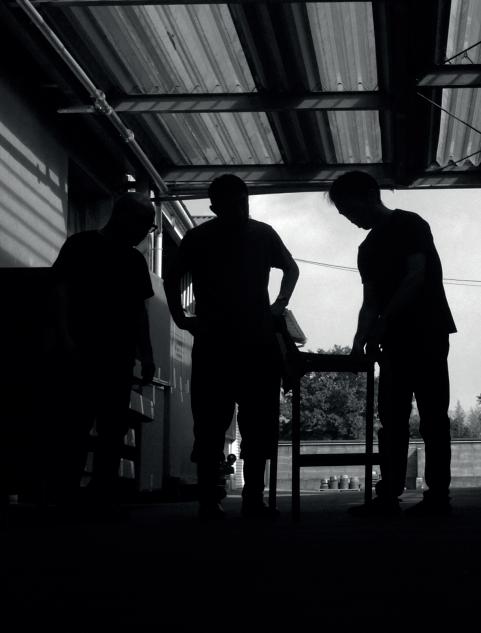
27
Miyazaki Chair Factory
The craftmanship behind the collection
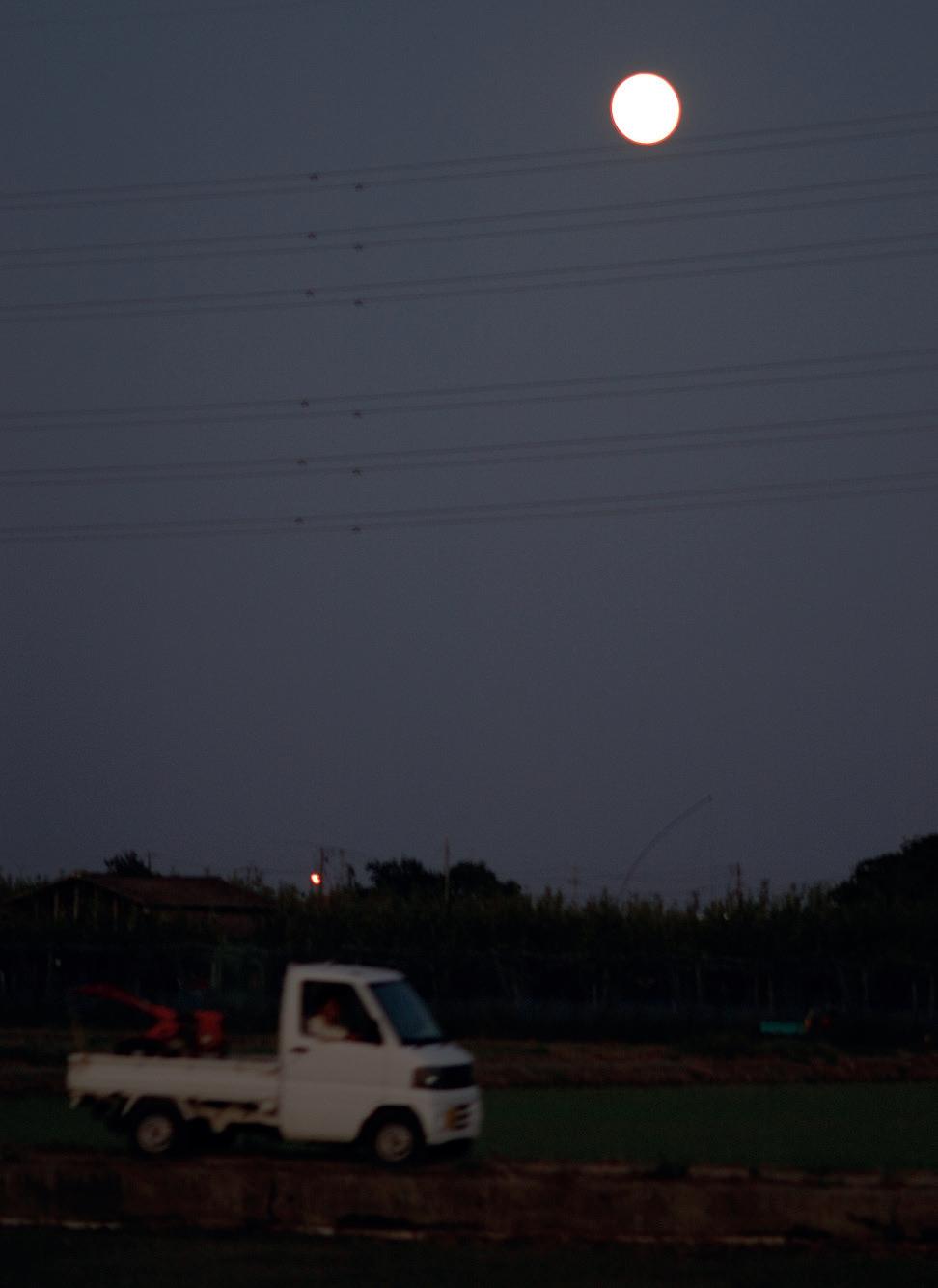

Nature isn’t just a supplier of materials
Nature is an essential collaborator, an inspiration that fosters a profound understanding and respect.
In their distinct ways, Vedel and Miyazaki share a profound connection with nature, manifesting a bond that transcends mere appreciation. For them, nature isn’t just a supplier of materials; it’s an essential collaborator, an inspiration fostering a profound understanding and respect.
Miyazaki prioritizes maintaining a close relationship with nature in the production of their furniture, utilizing raw materials such as wood and leather. Each block of wood and every hide arrives in its rawest form, untouched and authentic. This pursuit isn’t about perfection but rather a celebration of nature’s innate diversity and beauty found in the subtle imperfections, a philosophy that resonates with Vedel’s approach. The end product remains a natural entity, evolving over time through use, aging, and surroundings, much like nature itself.
On the one hand they embrace the inherent qualities of the materials, refusing to conceal nature’s nuances. On the other hand, Miyazaki leverages the possibilities and restrictions offered by nature, pushing the limits of material characteristics through decades of experience in woodworking and advanced machinery. The production of chairs becomes a collaboration with nature, and Miyazaki’s familiarity with materials enables them to create functional and innovative pieces.
The Vedel100 series stands out as an example of their venturing beyond comfort zones. For the very first time Miyazaki worked with sheepskin, a thick, high-pile material with unique attributes. Despite the initial unconventional nature of this material, Miyazaki embraced the challenge, reflecting their ethos of tackling obstacles, such as working with new materials, to achieve unprecedented results.
28
Miyazaki Chair Factory
The craftmanship behind the collection
Top: Exploring Naruta, Tokushima, Japan: snapshots of the factory surroundings, where industry and nature blend.
Miyazaki Chair Factory
The craftmanship behind the collection
They prefer to handle all materials in-house, avoiding collaboration with external firms. This hands-on approach ensures complete control over the production process, maintaining a deep connection with the final product.
Vedel, too, demonstrated a willingness to explore unconventional materials like melamine, distinguishing him from peers who adhered strictly to woodworking. Both Miyazaki and Vedel thrive on challenges, pushing boundaries to achieve what hasn’t been done before. Their motto, ‘chairs nobody else can make,’ exemplifies this mindset.
The research into materials remains a pivotal aspect for both Miyazaki and Vedel, leading to unexpected design solutions. Miyazaki stresses that even failed experiments contribute valuable information, emphasizing the importance of the design process over the time spent on it. In a world dominated by mass production and speed, Miyazaki resists the pressure, prioritizing quality and the search for the perfect piece over expediting the production process.
Their dedication to perfection extends to the everyday use of their own chairs, demonstrating that at Miyazaki, there are no outdated collections—only good design that withstands the test of time. Much like Vedel, who had his designs in his own home for years, Miyazaki understands that a well-designed piece endures, originating from a well-tought design process. In echoing Vedel’s legacy, the Miyazaki Chair Factory embodies the lasting significance of meaningful design, rooted in tradition but always innovating.
As in life, beautiful things endure only when there is meaning.
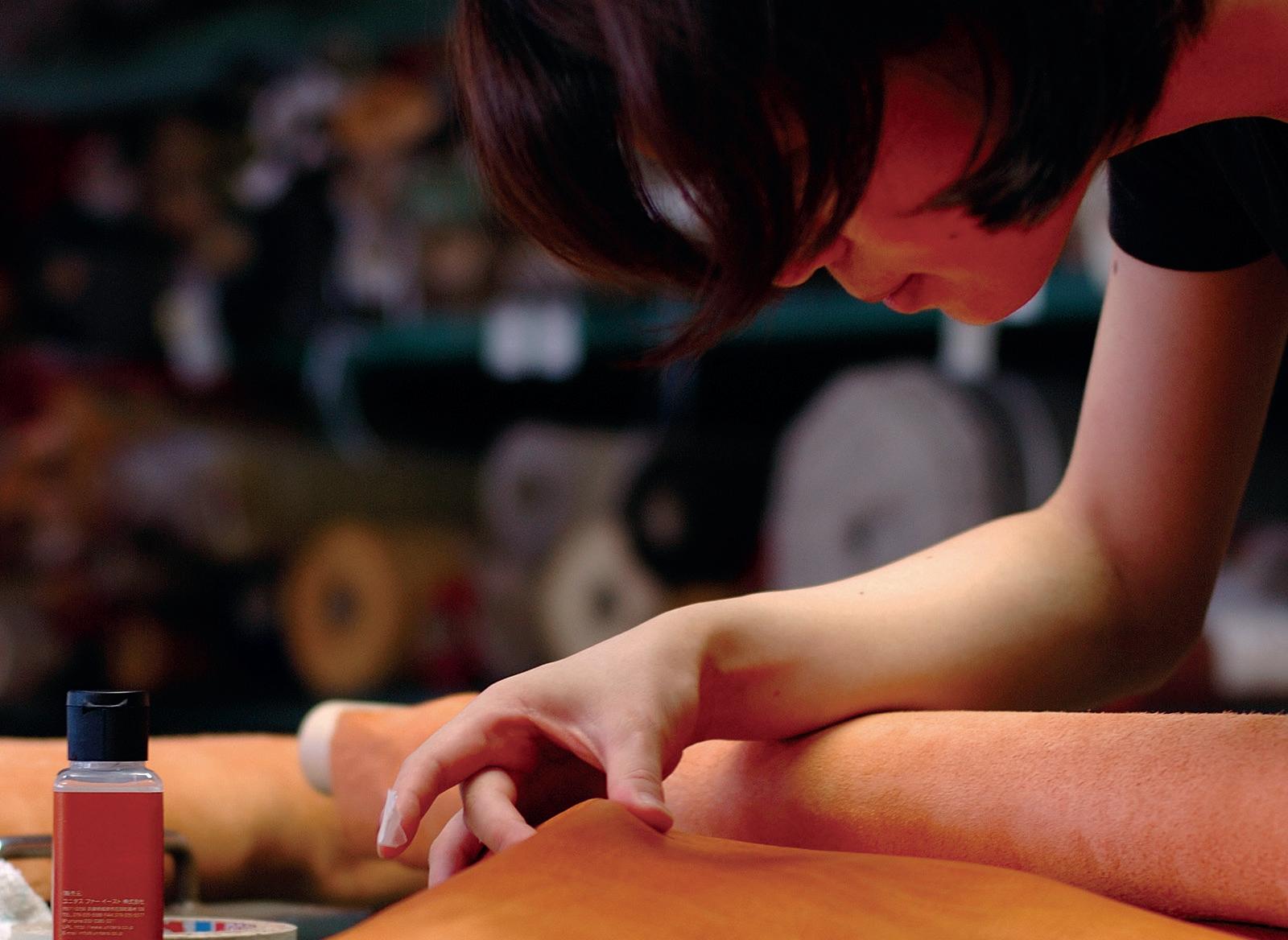
29
Bottom: Thorough inspection of cowhides takes place within the factory.
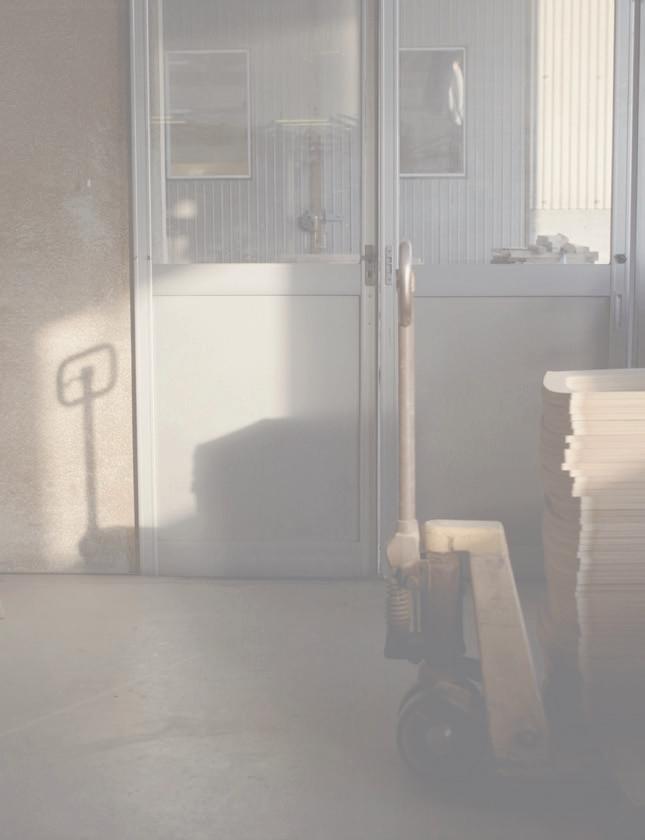
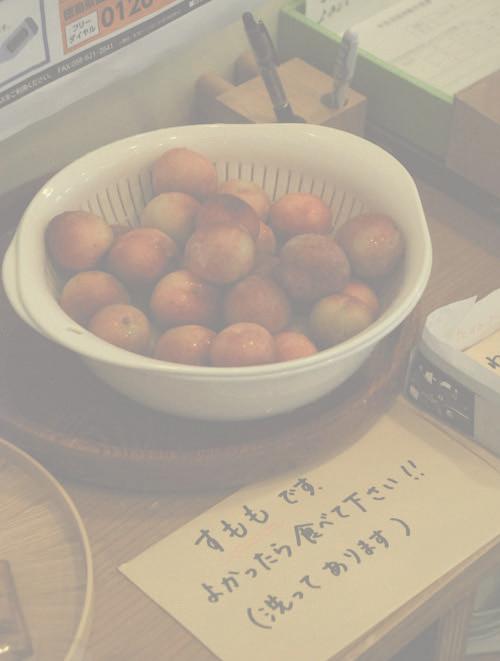


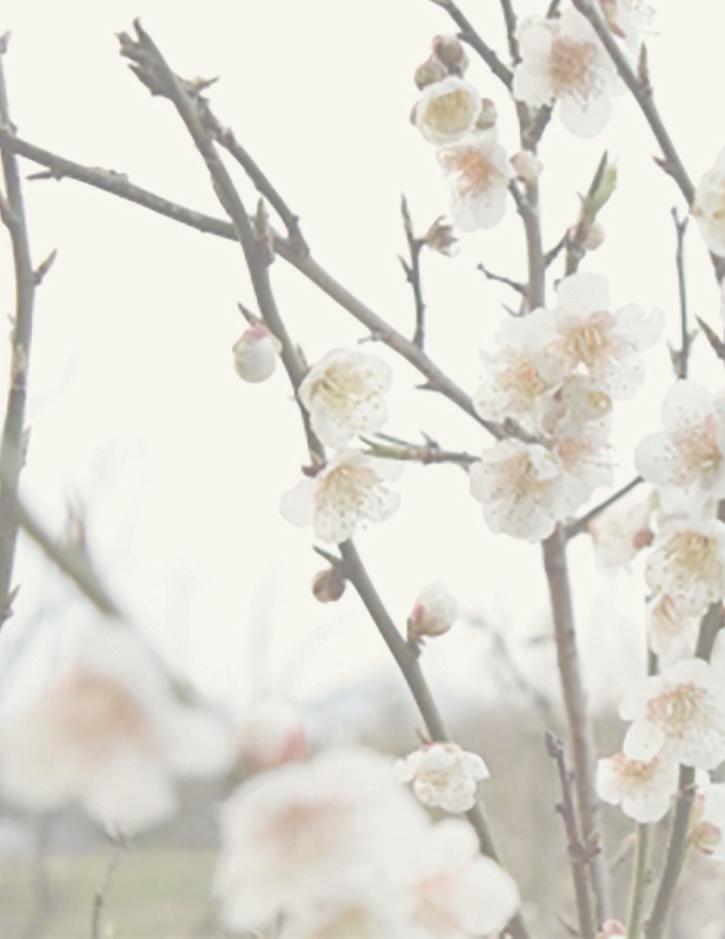
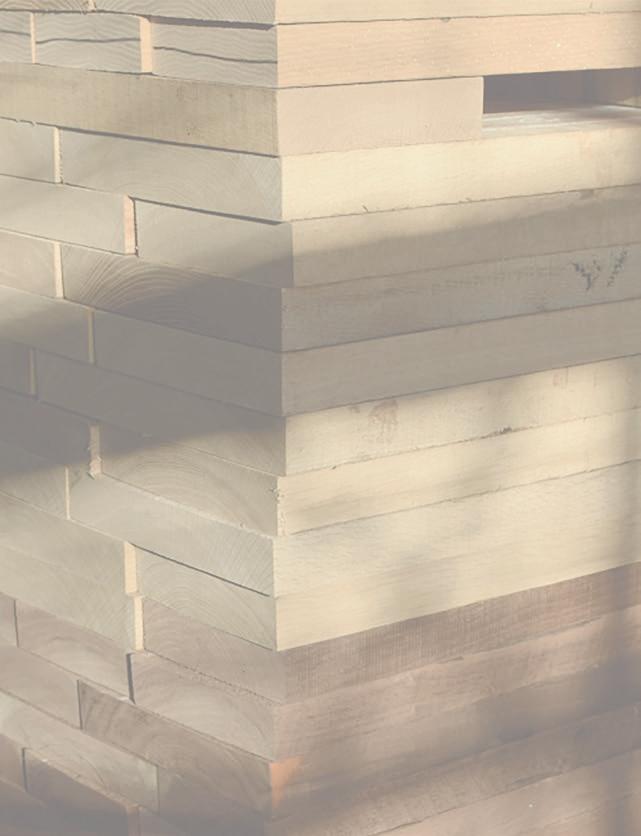
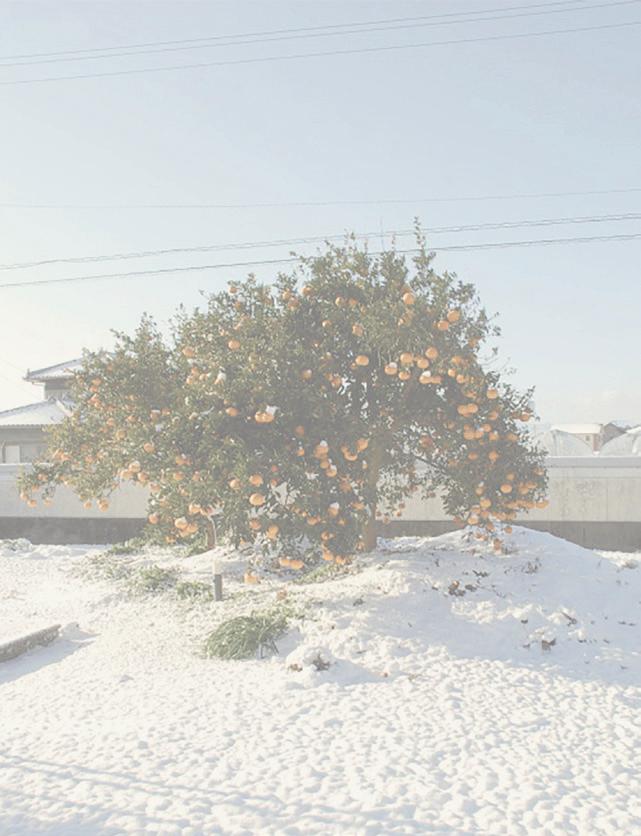
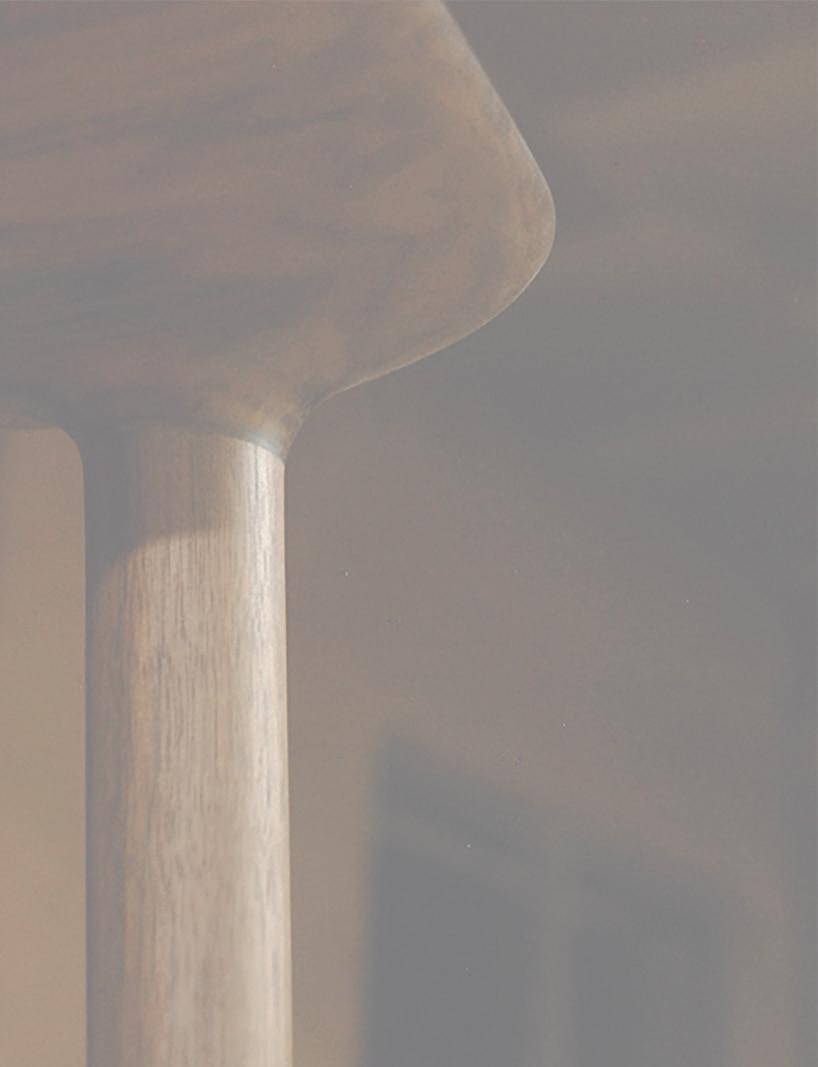
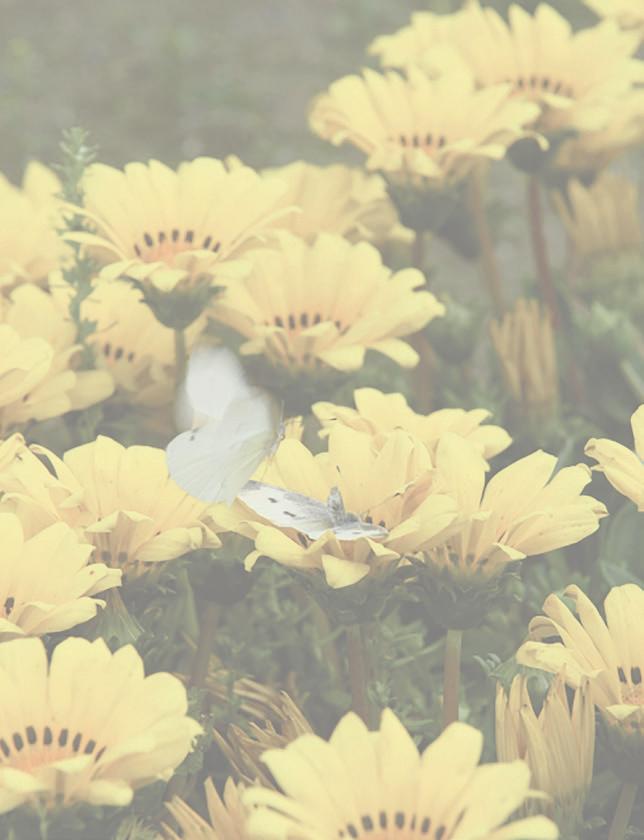 Miyazaki Chair Factory
Miyazaki Chair Factory
30
The craftmanship behind the collection
Miyazaki Chair Factory
The craftmanship behind the collection
100 exquisite pieces for 100 years of Kristian Vedel
In this last but pivotal chapter, we warmly invite you to explore the essence of this booklet — the Vedel100 edition. We are excited to share this momentous occasion with you: the Miyazaki Chair Factory proudly commemorates the 100th anniversary of the renowned Danish designer, Kristian Vedel (1923-2023). In honor of this extraordinary milestone, we are delighted to unveil the exclusive “VEDEL100” limited edition, featuring the iconic Modus easy chair and Modus ottoman, reimagined with a distinctive touch that distinguishes them from the rest.
MODUS series: a truly exceptional classic Shedding light on the essence of its timeless appeal
With the Modus series, originally designed in the 1960s for Søren Villadsen A/S in Vejen, Kristian Vedel had a unique ambition: to design a furniture line in which order, comfort and limitless adaptability in everyday use prevailed. The name ‘Modus series’ alone gives a subtle insight into its essence. ‘Modus’ or ‘Modular’ stands for the innate potential to arrange or integrate the elements of the series in different configurations, depending on the user’s preferences or needs. This inherent modularity gives the Modus series a remarkable degree of versatility and personalisation.
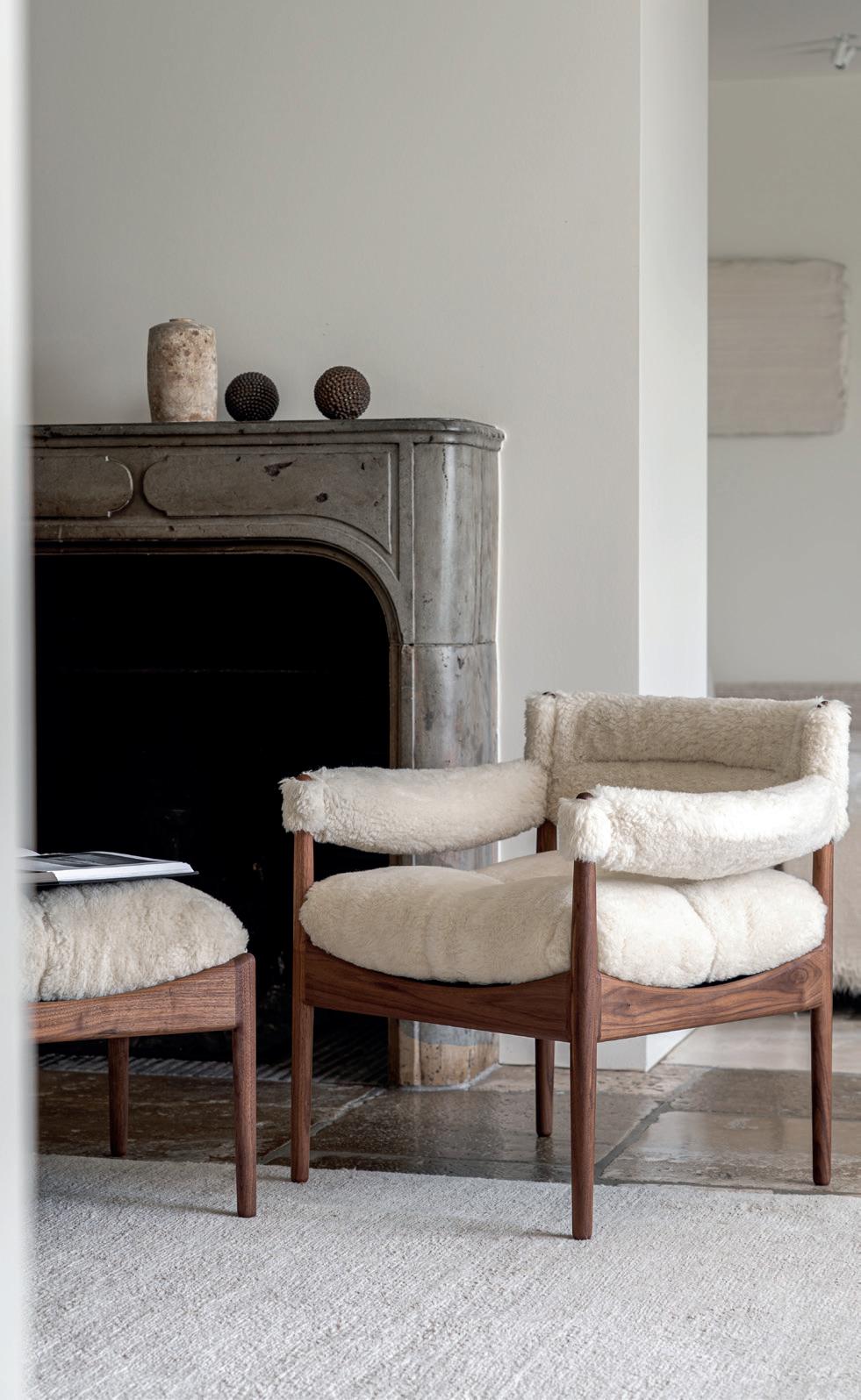
Vedel100 Unveiling a limited special edition 37
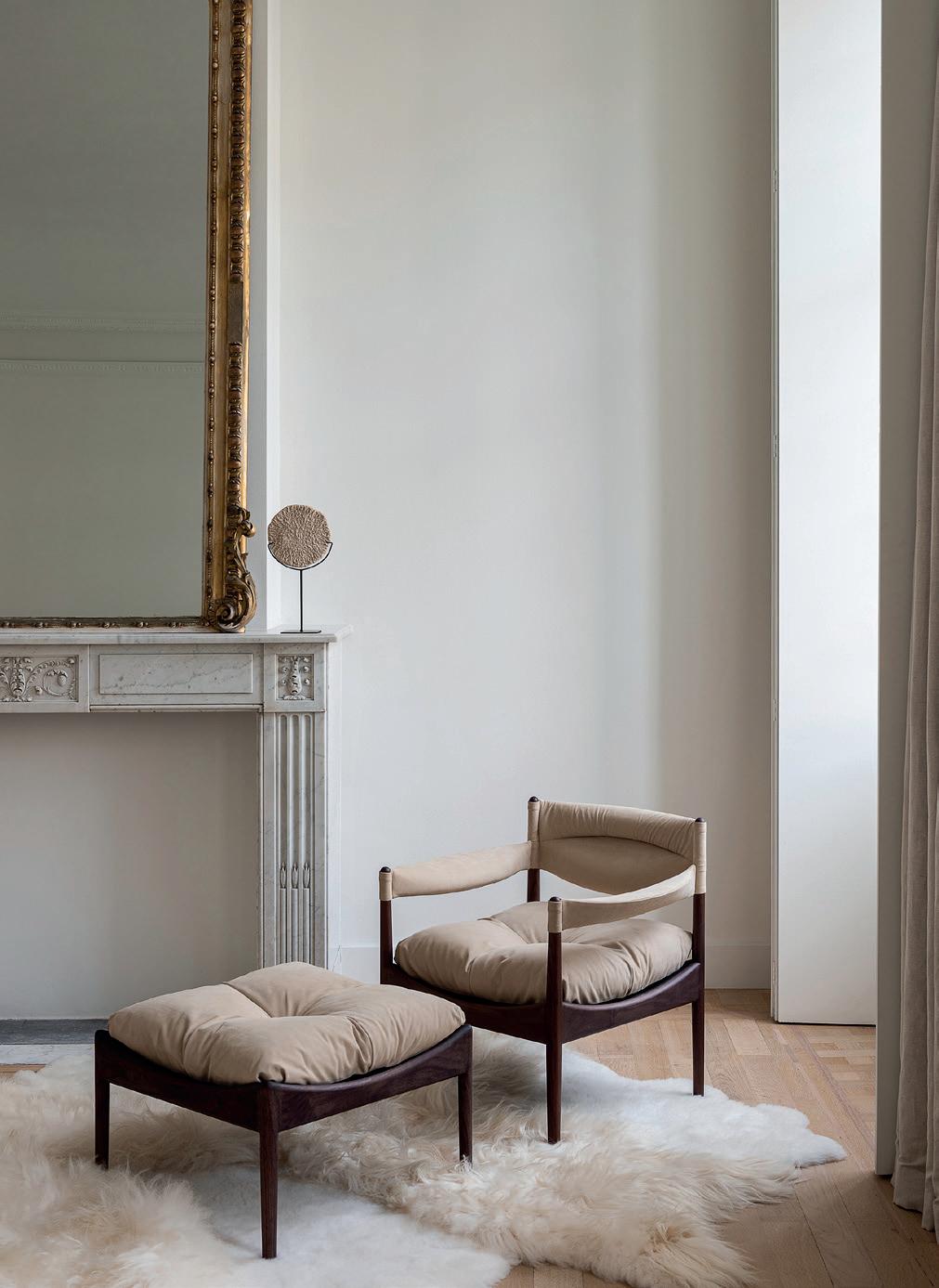
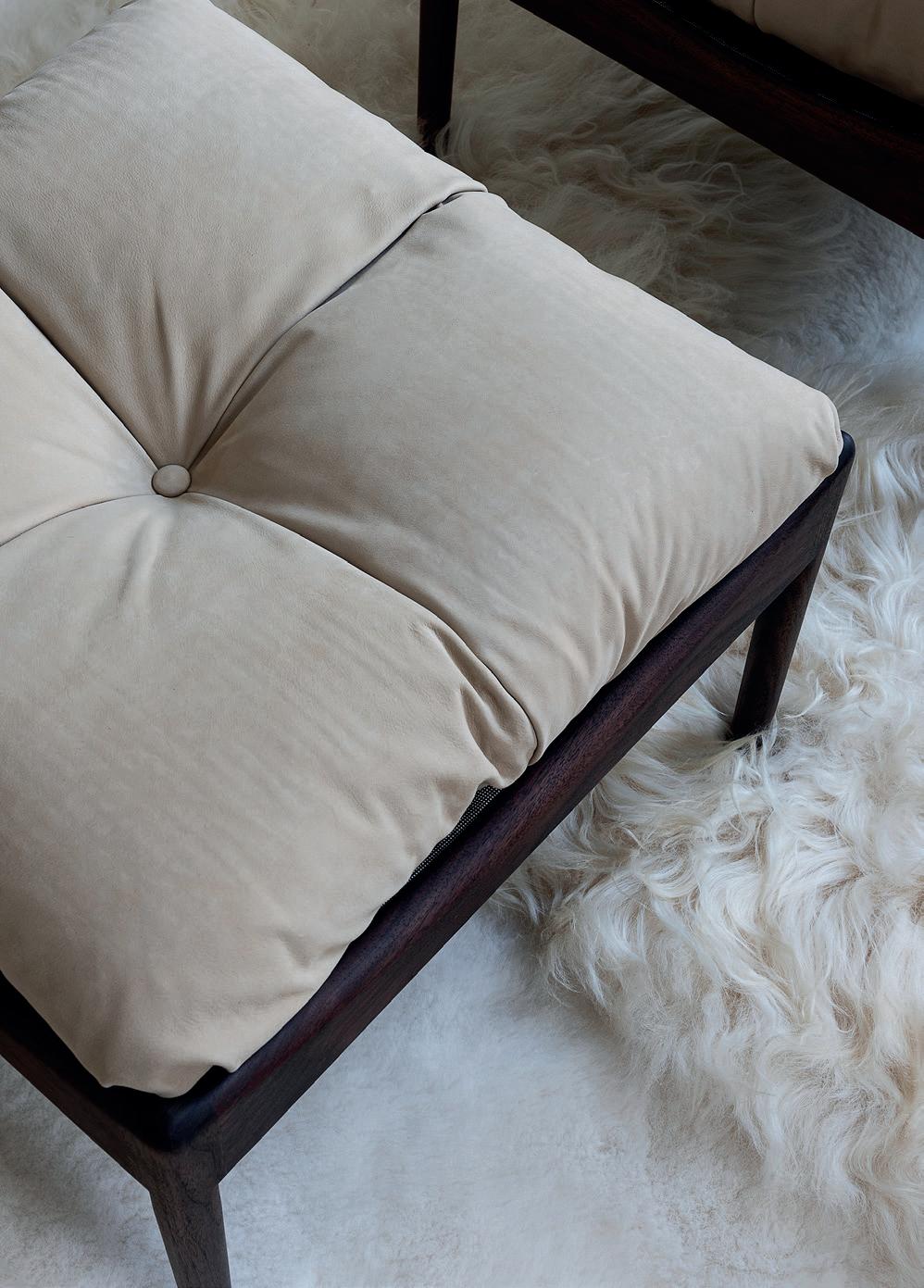
Although the VEDEL100 limited edition highlights only two pieces from the Modus series, it is essential to recognise the wealth of variations within the series. The variability lies in the combinations of the different elements and models – which results in three chair models, one stool, and ten table models, all arising from the interplay of the table frame and its eight tabletop elements.
Because each piece can be traced back to the same fundamental square base and the total number of wooden parts is limited to just five pieces - consisting of a single frame and legs in four different lengths - you might be tempted to think of the Modus series as straightforward in terms of construction. But as it is often the case, simplicity in design leads to high standards in execution. This is certainly the case for the Modus series. The materials, the design, and the comfort – all viewed from both technical and artistic perspectives – must be spot-on. Very high standards are set here to achieve perfection. These are the same standards that Kristian Vedel imposes on himself in his quest to solve every possible problem.
The quality of the Modus series is not merely the result of chance but rather the outcome of extensive experimental work and meticulously organized production processes. Despite its apparent simplicity, each component undergoes thorough treatment to ensure the highest standards of quality, comfort and durability. Kristian Vedel’s pursuit of seriality and comfort is evident in every detail, such as the use of down cushions and foam elements for seating and armrests. Moreover, the assembly process further reinforces the integrity of Modus furniture. By assembling frames in the factory, the series guarantees sturdiness and eliminates the risk of incorrect assembly. Kristian Vedel leaves nothing to chance.
Essentially, what makes the Modus series exceptional is the seamless blend of form and function, craftsmanship, and innovation. It is a timeless embodiment of excellent design, destined to elevate any space.
38
Top: images of the classic Modus easy and ottoman produced by the MCF, where the upholstery and cushion filling play a crucial role.
Vedel100 Unveiling a limited special edition
Right: The modus ottoman and modus side table manufactured by MCF. For all pieces of the MODUS series, the consistent square wooden frame serves as the foundational element.
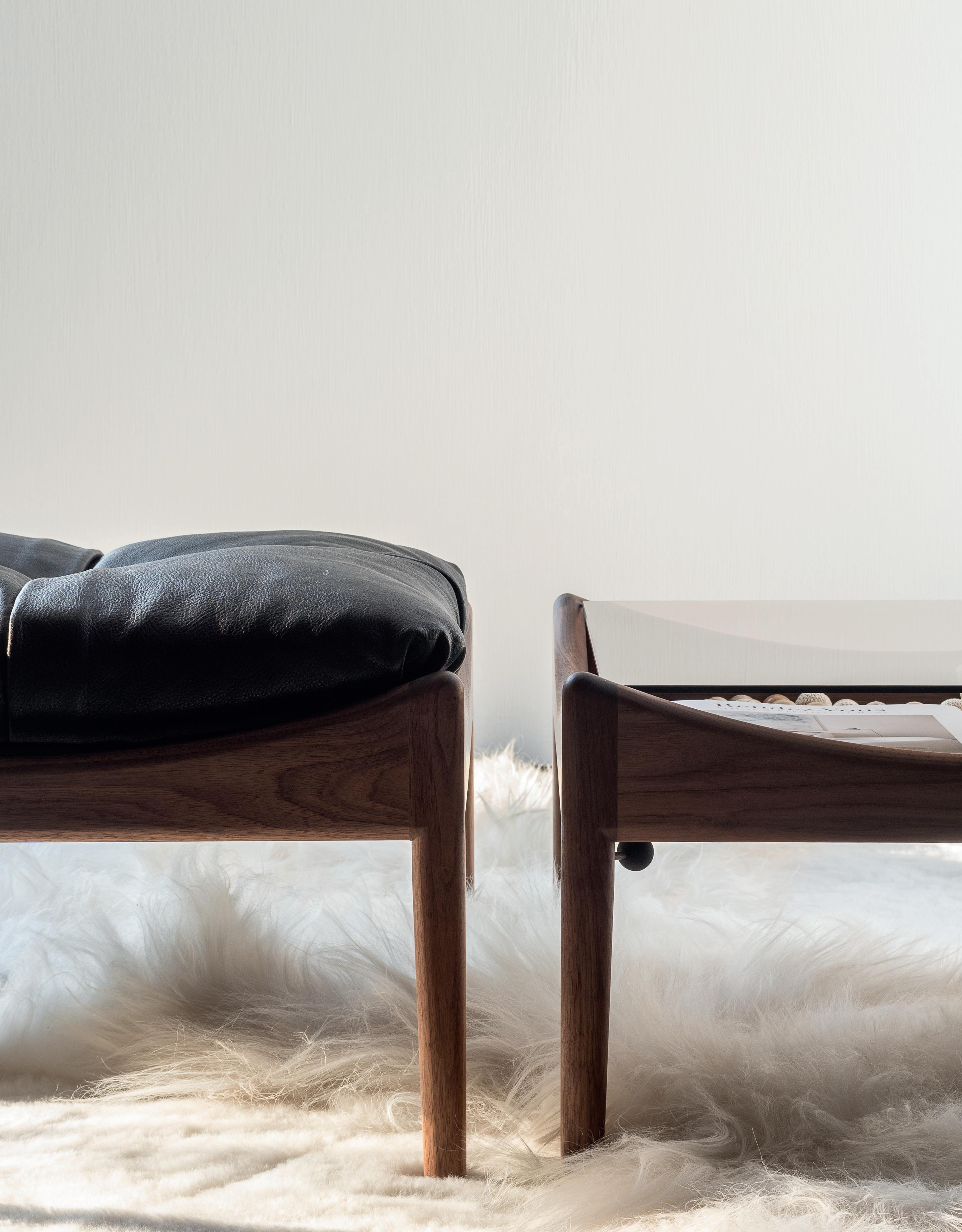
39 Vedel100 Unveiling a limited special edition
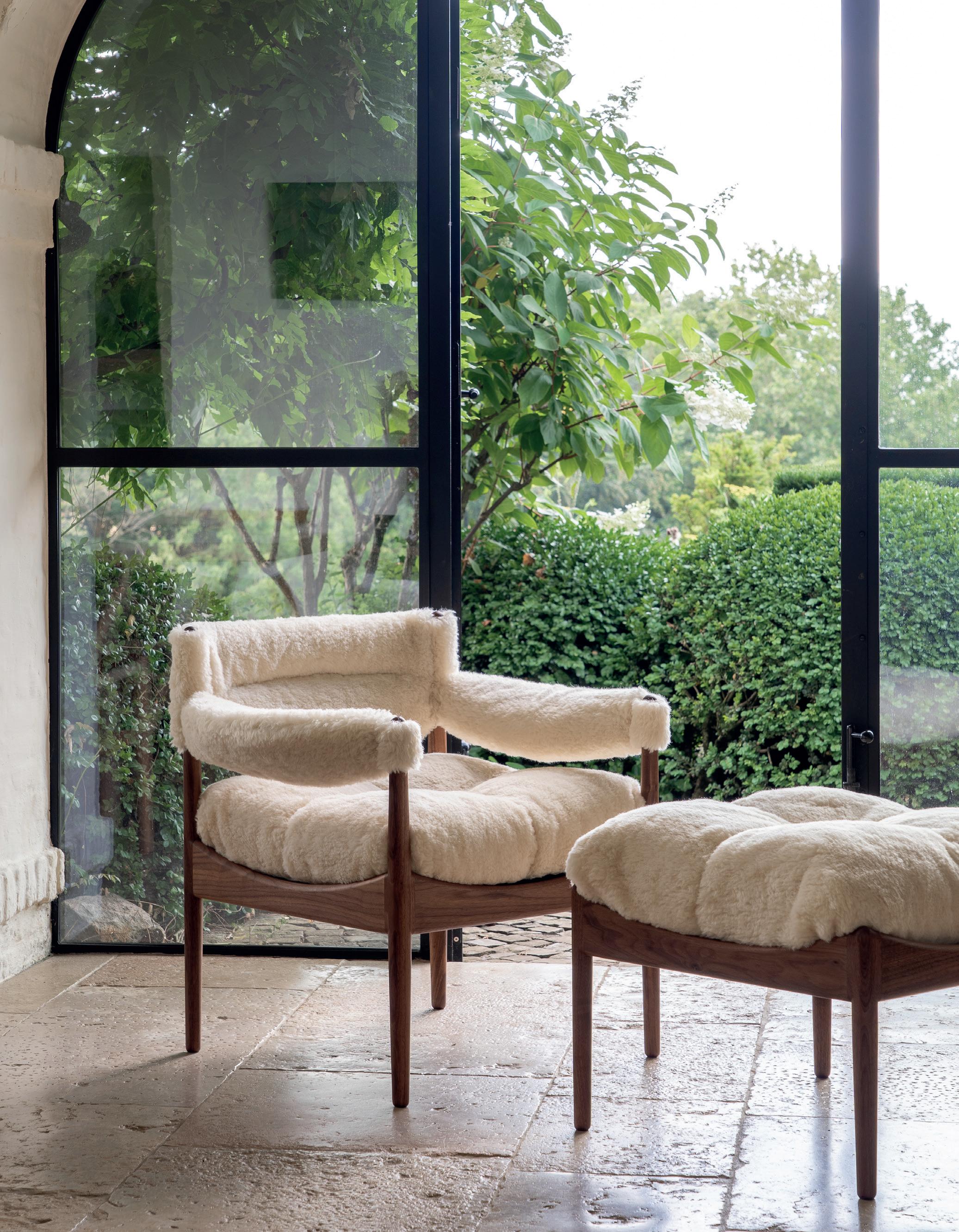
40 Vedel100 Unveiling a limited special edition
Vedel100
Unveiling a limited special edition
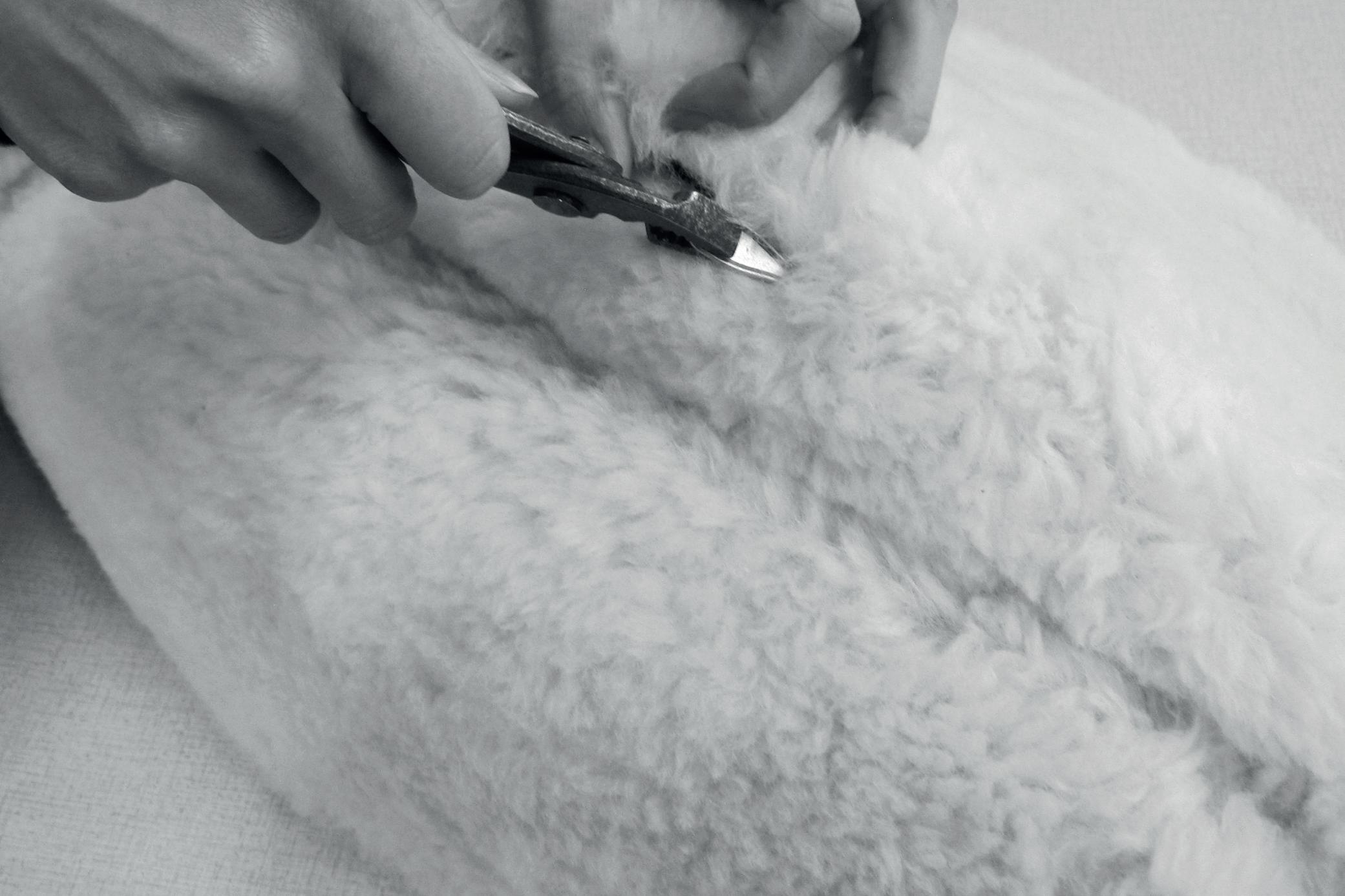
VEDEL 100: a tribute to the Modus series Unveiling a limited special edition
First and foremost, it’s important to highlight that this special VEDEL100 edition aims to honor the classic Modus series. The recognizable square wooden frames remain untouched. As, since the inception of the idea for this special edition, the overarching aim has been to pay homage to the esteemed Modus series while embracing and celebrating its intrinsic qualities. The VEDEL100 edition is unique because the Modus easy and Modus ottoman, the pieces of the Modus series for which the designer is most renowned today, are presented in a different light. Namely, in sheepskin. A material that Miyazaki works with exclusively for this edition. This particular choice of material pays homage to the multifaceted talents of Kristian Vedel, who, in addition to his design prowess, had a remarkable chapter in life as a sheepfarmer.
Not only does the edition carry profound meaning derived from Vedel’s life story, but it also adds an exquisite level of comfort to the Modus. Wrapped in sheepskin, these pieces offer a tactile experience that is both soft and timeless. The sheepskin, sourced from Europe and meticulously crafted in Japan, serves as a bridge between cultures – a testament to Miyazaki’s and Vedel’s openness to diverse influences.
The VEDEL100 pieces feature frames crafted from walnut or walnut ebony. Offering you the option of a natural oil finish for a lighter hue or an ebony oil finish for a deeper, more darker shade. The combination of the soft sheep and the wooden structure remains light given the light basic structure. Every aspect of the woodwork is refined and smooth to the touch, mirroring the tactile softness of the sheepskin upholstery. This harmonious blend of materials not only ensures a soft and inviting feel but also exudes a timeless warmth.
41
Left: the Modus easy chair and Modus ottoman VEDEL100 edition, showcasing their natural oiled walnut finish against a backdrop of sunlight.
Right: a behind-thescenes photo from the production in Japan showing the making of the sheepskin upholstery by Miyazaki. It marks Miyazaki’s first-ever venture into working with sheepskin, and they embraced the challenge with enthusiasm.
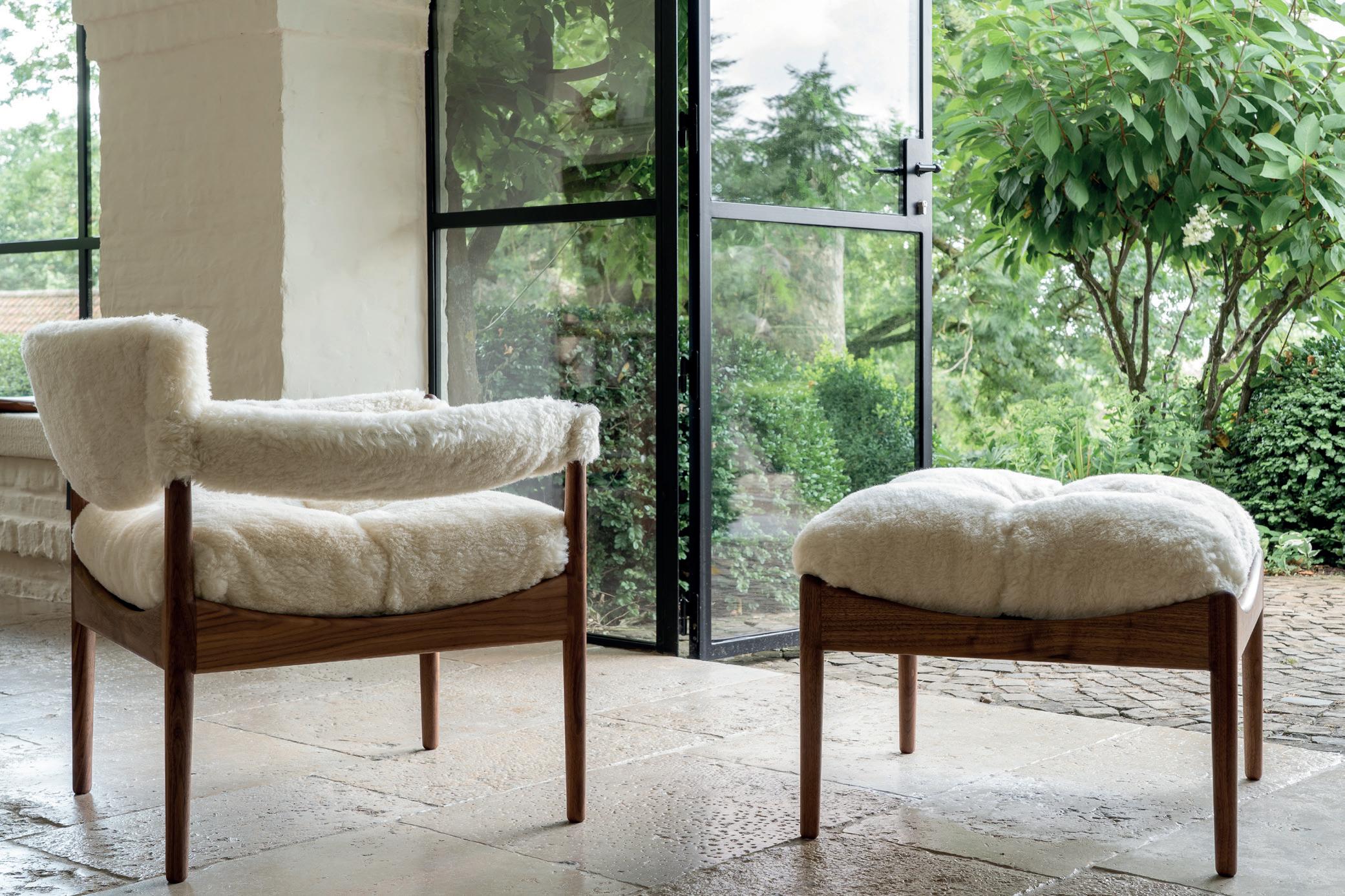
was inspired by the weaving traditions of Central America, which Ane and Kristian Vedel visited in the early 1960s.
Beyond its connection to Vedel’s life story, the sheepskin enhances the comfort of the Modus, providing a soft, enveloping sensation. Its natural qualities make it ideal for all seasons, creating a piece that is not only visually appealing but also exceptionally comfortable. Sheepskin offers a delightful blend of comfort and versatility across seasons. Renowned for its inherent qualities, it gracefully adapts to varying temperatures. In colder climates, its insulating properties cocoon the user in warmth, ensuring a cozy and inviting experience. Conversely, during warmer days, sheepskin’s breathability and moisture-regulating capabilities come to the forefront, providing a cool and refreshing sensation. The breathable aspects of the sheep skins also make it possible that air can pass unhindered underneath for the sake of the bottom pillow.
Beyond its functional attributes, the natural allure of sheepskin imparts a timeless elegance to any setting, making it a cherished companion throughout the year. Sheepskin’s strength and durability make it ideal for daily use, ensuring longevity and maintaining both structural integrity and aesthetic appeal over time.
Preserving design heritage: the signifance of the VEDEL100 pieces
A limited numbering and certificates of authenticity
At the heart of the VEDEL100 collection lies a meticulous process of numbering and authentication. Similar to other pieces within the Miyazaki collection, including the Modus series, VEDEL100 pieces are distinguished by a unique plate fixed to the bottom of the wooden frame. This nameplate serves as evidence of their authenticity, bearing the name of the designer, the manufacturer Miyazaki, and their serial number. For example, the number 1/100 signifies the first piece in the collection.
Once all 100 numbers are allocated, production of this special edition will cease. Additionally, each
Vedel100 Unveiling a limited special edition
42
Top: The sheep upholstery alludes to the time when the Vedels herded sheep. Their initial idea to produce modular garments from wool
VEDEL100 piece comes with a certificate of authenticity, affirming its inclusion in this exclusive edition.
These VEDEL100 pieces are not just furniture; they’re meant to be treasured by the current and future generations. Collectors play a crucial role in safeguarding the heritage of iconic designers such as Kristian Vedel. By assigning a unique serial number to each piece, the VEDEL100 collection fosters a sense of responsibility among collectors, urging them to preserve these treasures for generations to come. Likewise, the certificates of authenticity, which are issued by date, serve as archival documents, meticulously documenting the origin and lineage of each item, thereby ensuring the perpetuation of its historical significance for their future owners.
VEDEL100 can be seen as a catalyst, celebrating 100 years of Vedel by providing a boost to the Modus series and shining a spotlight on its timeless elegance and enduring appeal. While the first century of Kristian Vedel has come to an end, holding this booklet signals the dawn of a new era. While a hundred years of Vedel may have come and gone, the Modus series continues to live on, alongside the enduring influence of their remarkable designer and the beautiful craftmanship of Miyazaki. His Modus series, with its elegant simplicity and timeless appeal, continues to captivate hearts and minds, embodying the essence of visionary design. And alongside Vedel’s legacy, we find the masterful craftsmanship of Miyazaki, whose collaboration with Vedel has produced timeless treasures that transcend generations.
As we step into this new century, we eagerly anticipate the next chapter for the Modus series, recognizing that this is not the end; rather, it marks a bright future knowing that the Modus series by Miyazaki promises even more beauty and inspiration for us to discover.
Due to your unwavering support, the adventure continues.
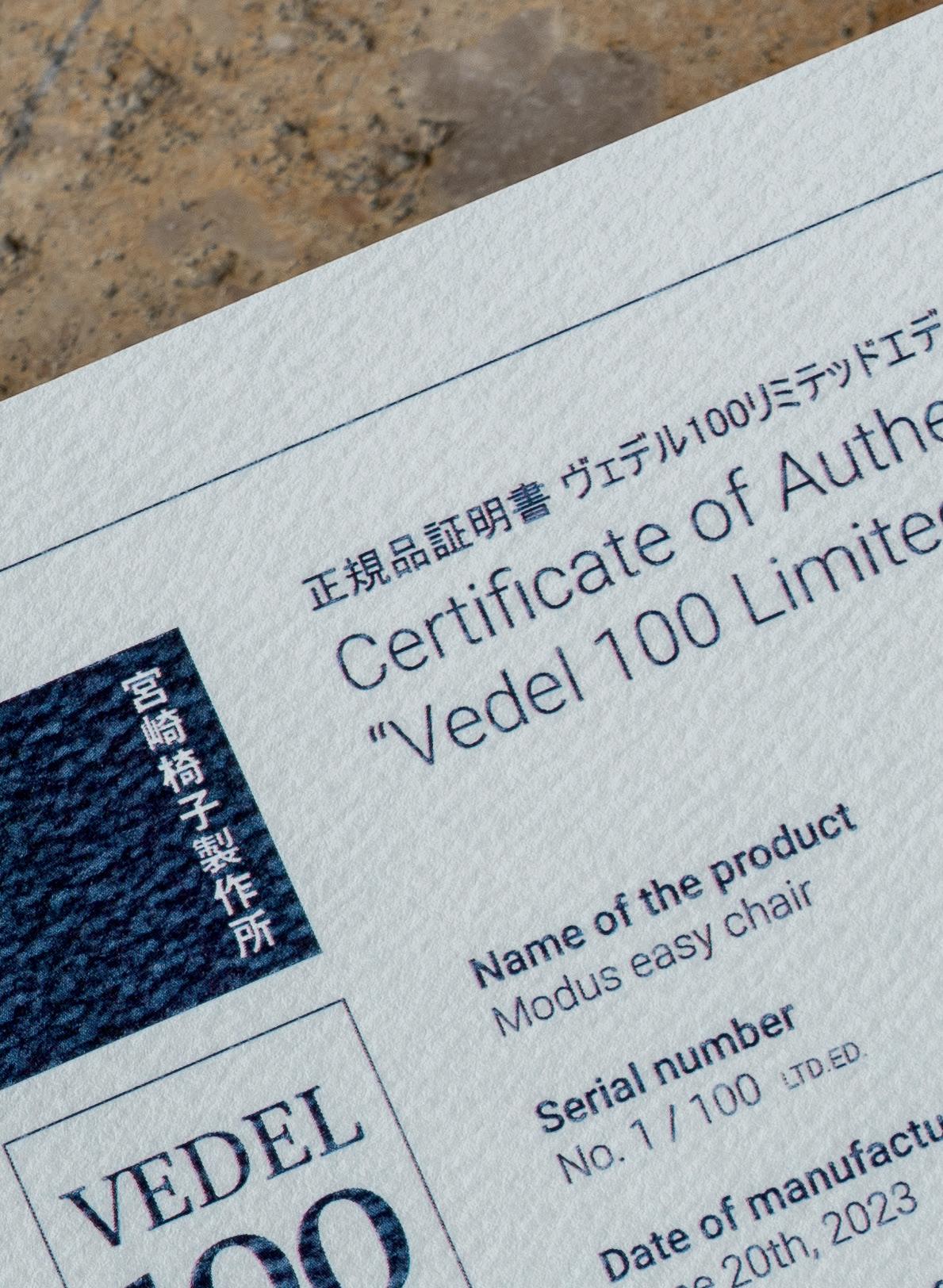
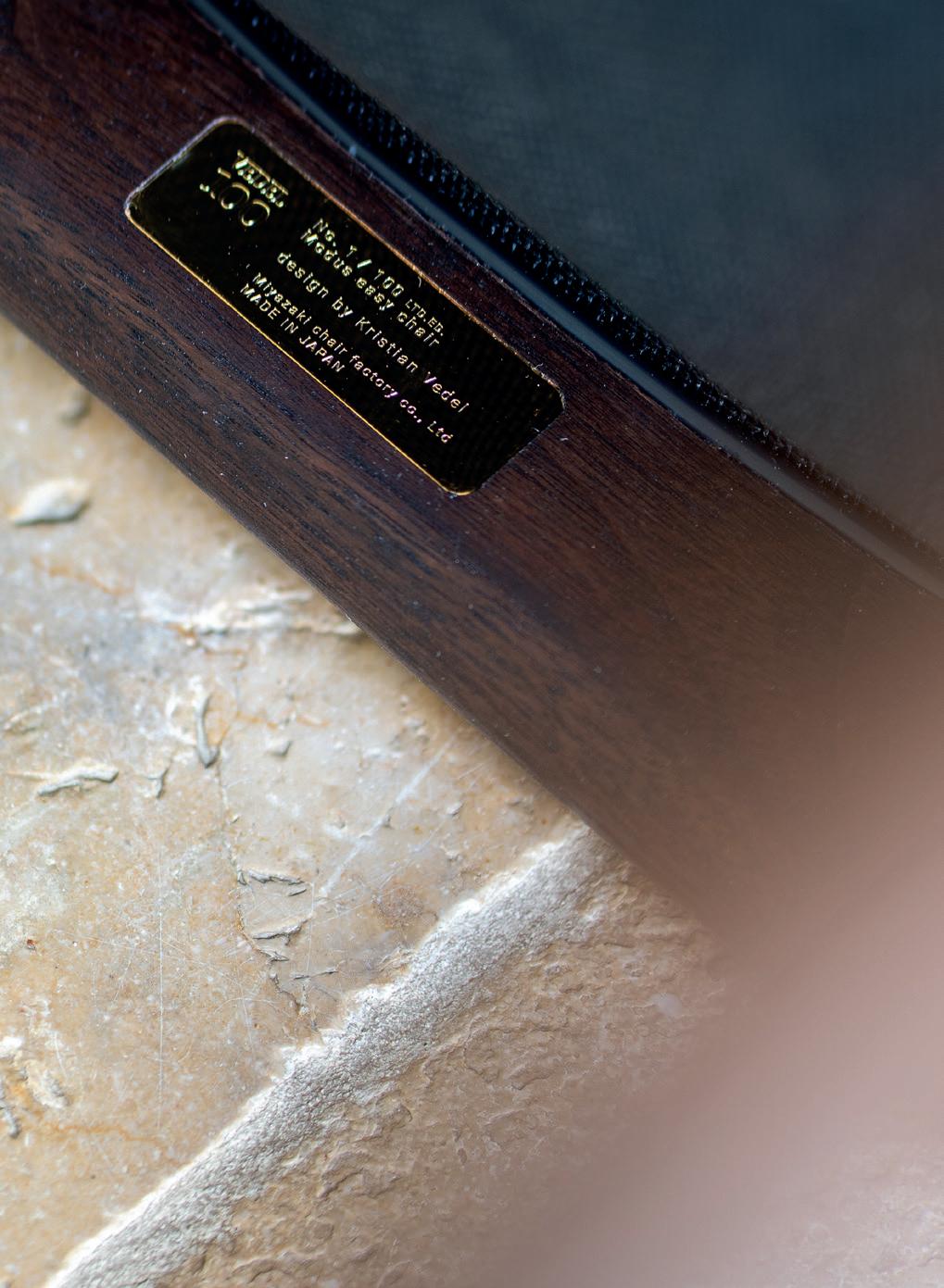
Vedel100
a limited special edition 43
Unveiling
Bottom: A fragment of the certificate of authenticity and the unique serial plate issued for VEDEL100 number 1/100.
Technical details
In addition to the VEDEL100 edition, Miyazaki will continue to produce the classic Modus series, as they have done previously. Even after the conclusion of the VEDEL100 edition, the classic versions of Modus easy and Modus ottoman will remain in production.
MEASUREMENTS
When it comes to dimensions, the Modus series maintains a harmonious simplicity throughout its designs. Whether it’s the classic series, the VEDEL100 edition, the easy chair, or the ottoman, each wooden frame adheres to the same dimensions: 55 by 55 centimeters. The armrests of the Modus easy gracefully extend from the frame, measuring at 64 by 64 centimeters.
As for the seating height, Miyazaki offers two standard options: 35 centimeters (the original height) and 38 centimeters (a higher version). This uniformity in dimensions ensures effortless integration and aesthetic cohesion in diverse living spaces.
UPHOLSTERY OPTIONS
For the VEDEL100 edition, Miyazaki employs sheepskin for upholstery. The choice of wool embodies unparalleled softness, sourced from 100% virgin wool derived from the sheep’s first shearing. Crafted by artisans in Italy using ancient velvet looms, the wool utilized embodies quality and craftsmanship.
In contrast, the Modus series by Miyazaki offers a diverse array of exquisite finishes, ranging from the finest leathers in various colors, unique textures, and differing qualities, primarily aniline leathers. However, for the VEDEL100 special edition, Miyazaki has exclusively opted for a natural toned sheepskin upholstery. This unique decision ensures that the VEDEL100 stands out distinctly amidst the Modus series offerings.
Vedel100 Unveiling a limited special edition 44
55cm 38cm
Frontview: Modus easy chair Indication of the upholstered parts
Vedel100
Unveiling a limited special edition
WOOD SELECTION
For this special edition, Miyazaki exclusively utilizes walnut wood. It can be finished in 2 variations: natural oiled or ebony oiled, which is a darker shade. These are both finishes that will gradually lighten in color over the years and with use.
It’s important to emphasize that for the classic Modus series, Miyazaki offers a wider range of wood types and finishes beyond the special edition. Whichever option you choose, each finish showcases the beautiful qualities and hue of the wood. Whether it’s the warmth of the walnut or the natural charm of the oak, all possible options highlight the inherent beauty of the natural material.
It’s this inherent charm and character that Miyazaki aims to accentuate with their range of finishes, allowing customers to appreciate and incorporate the natural allure of wood into their living spaces. Miyazaki prioritizes ensuring everyone can create a composition that aligns with their interior aesthetics. Hence, they provide a broad spectrum of wood options. However, for Vedel100, they intentionally limit the options to underscore its uniqueness.
MIYAZAKI’S MODUS SERIES
While the special edition primarily focuses on the “Modus easy” and “Modus ottoman”, the MCF also offers other playful variations for their classic Modus series. In addition to the familiar easy and ottoman, Miyazaki presents the “easy left/right arm” and “easy armless” variants, allowing for customizable arrangements. Sharing the same square base frame, each model facilitates seamless combinations.
Miyazaki also produces a Modus side table, which shares the same dimensions as the seating arrangements, making it a perfect complement to the “easy chairs”.
But innovation doesn’t stop there. The MCF is currently in the process of reintroducing additional models from the Modus series, including the eagerly anticipated modus dining chair, scheduled for launch later this year. While maintaining its iconic design, this dining chair introduces new dimensions and functionalities.
45
Modus easy Left arm, armless, right arm
Sideview: Modus easy chair Indication of the wooden parts
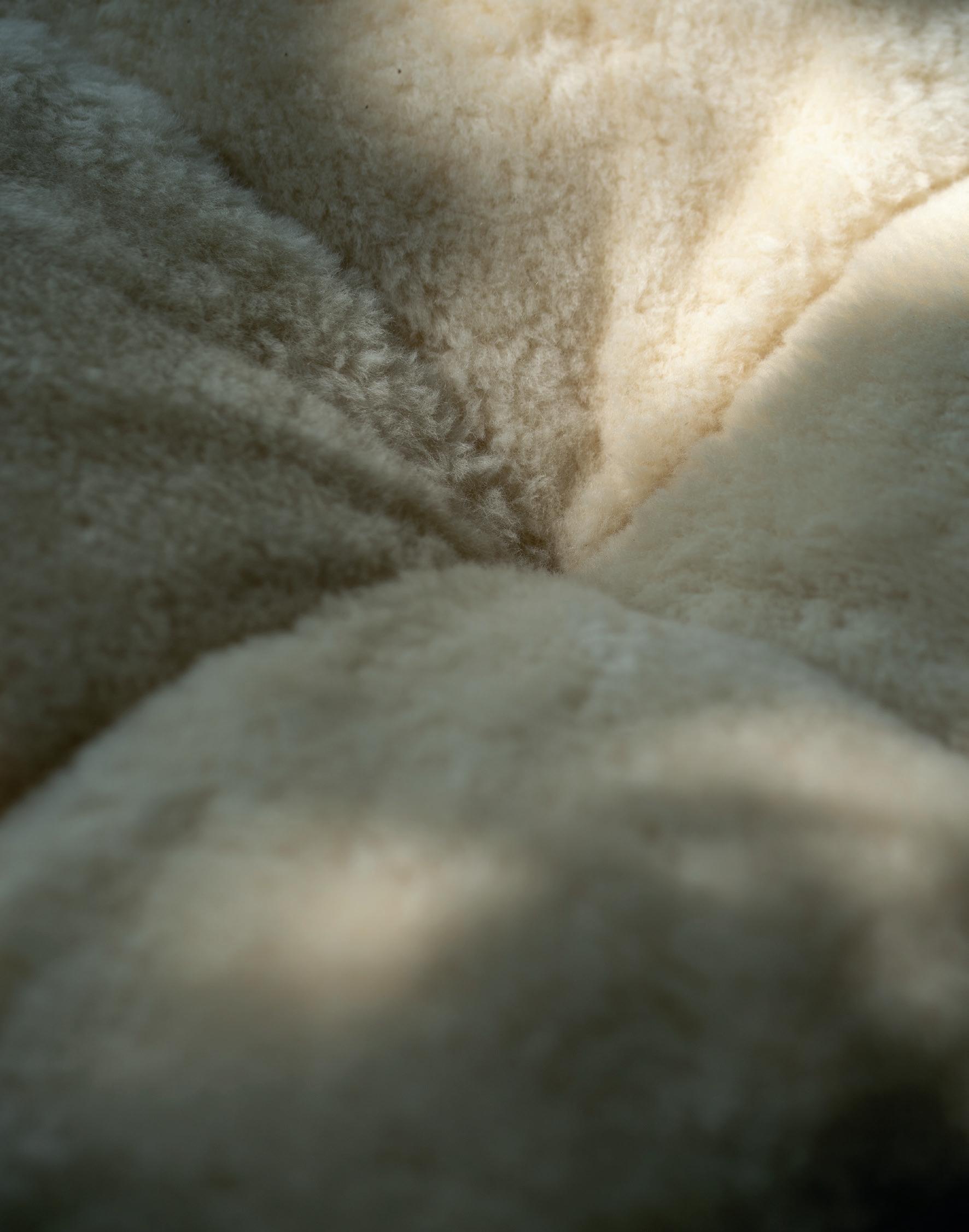 On the 2nd of March 2023, Danish designer Kristian Vedel (1923 - 2003) would have turned 100 years old. To celebrate this special occassion, the Miyazaki Chair Factory launched a special edition in 2023, called ‘Vedel 100’.
On the 2nd of March 2023, Danish designer Kristian Vedel (1923 - 2003) would have turned 100 years old. To celebrate this special occassion, the Miyazaki Chair Factory launched a special edition in 2023, called ‘Vedel 100’.

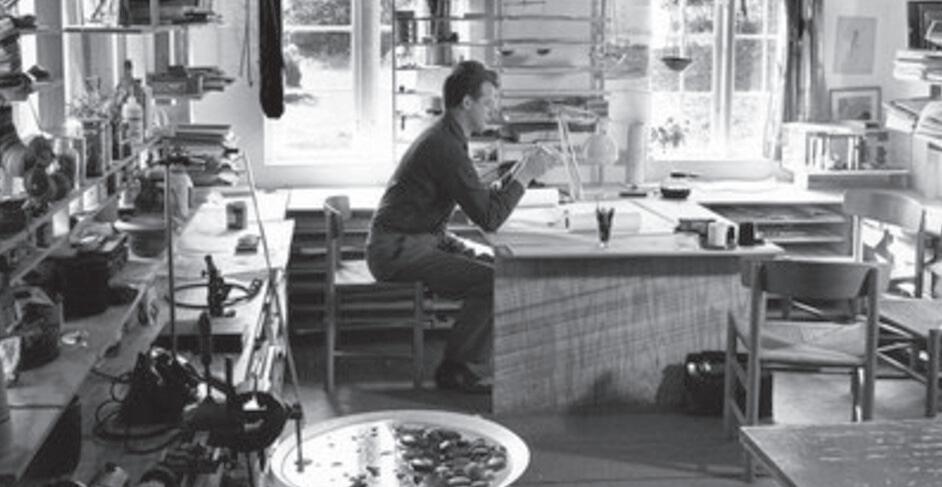
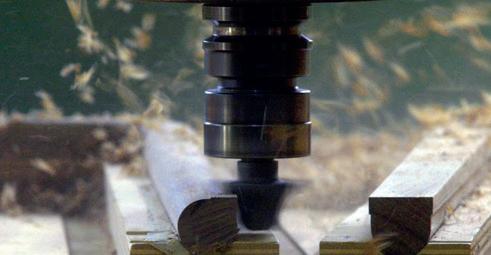
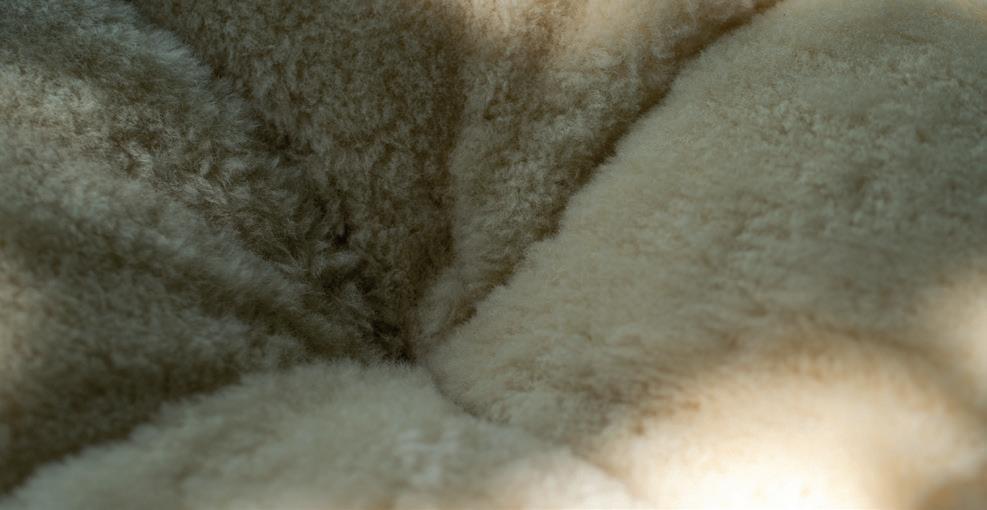
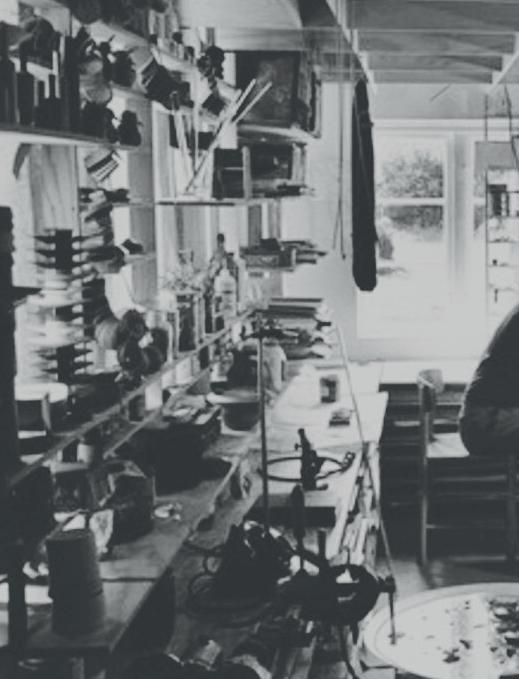
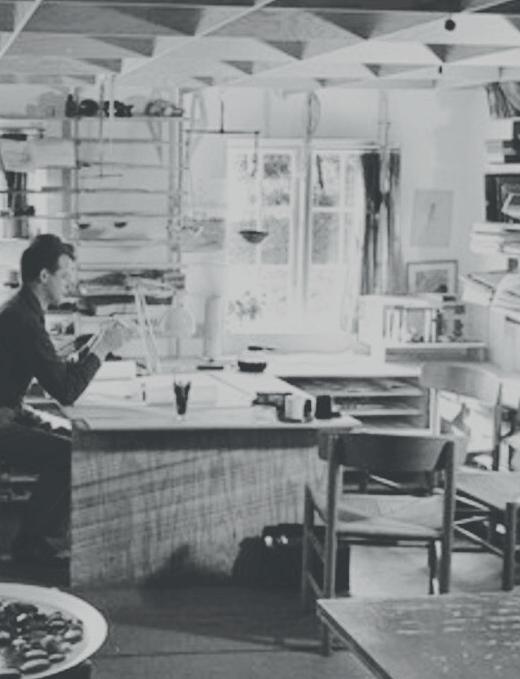
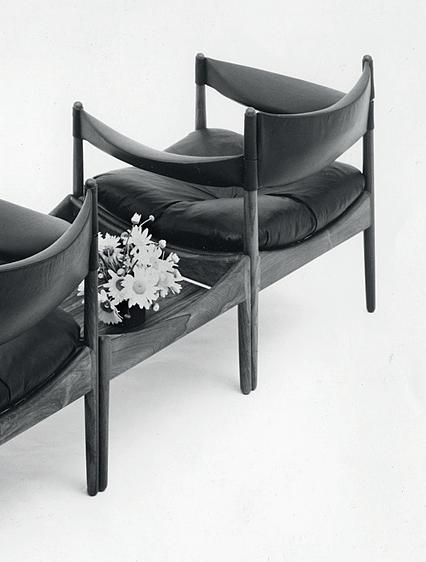



 Top: Kids chair by Kristian Vedel. Kristian Vedel received the silver medal at La Triennale di Milano for children’s furniture (1957).
Bottom: Kristian Vedel (center), on the cover of the Lunning Prize book.
Kristian Vedel
Top: Kids chair by Kristian Vedel. Kristian Vedel received the silver medal at La Triennale di Milano for children’s furniture (1957).
Bottom: Kristian Vedel (center), on the cover of the Lunning Prize book.
Kristian Vedel
 Kristian Vedel
Kristian Vedel


 Kristian Vedel lecturing at the university of Nairobi.
Kristian Vedel lecturing at the university of Nairobi.


 Miyazaki Chair Factory
The craftmanship behind the collection
Miyazaki Chair Factory
The craftmanship behind the collection

























 Miyazaki Chair Factory
Miyazaki Chair Factory
